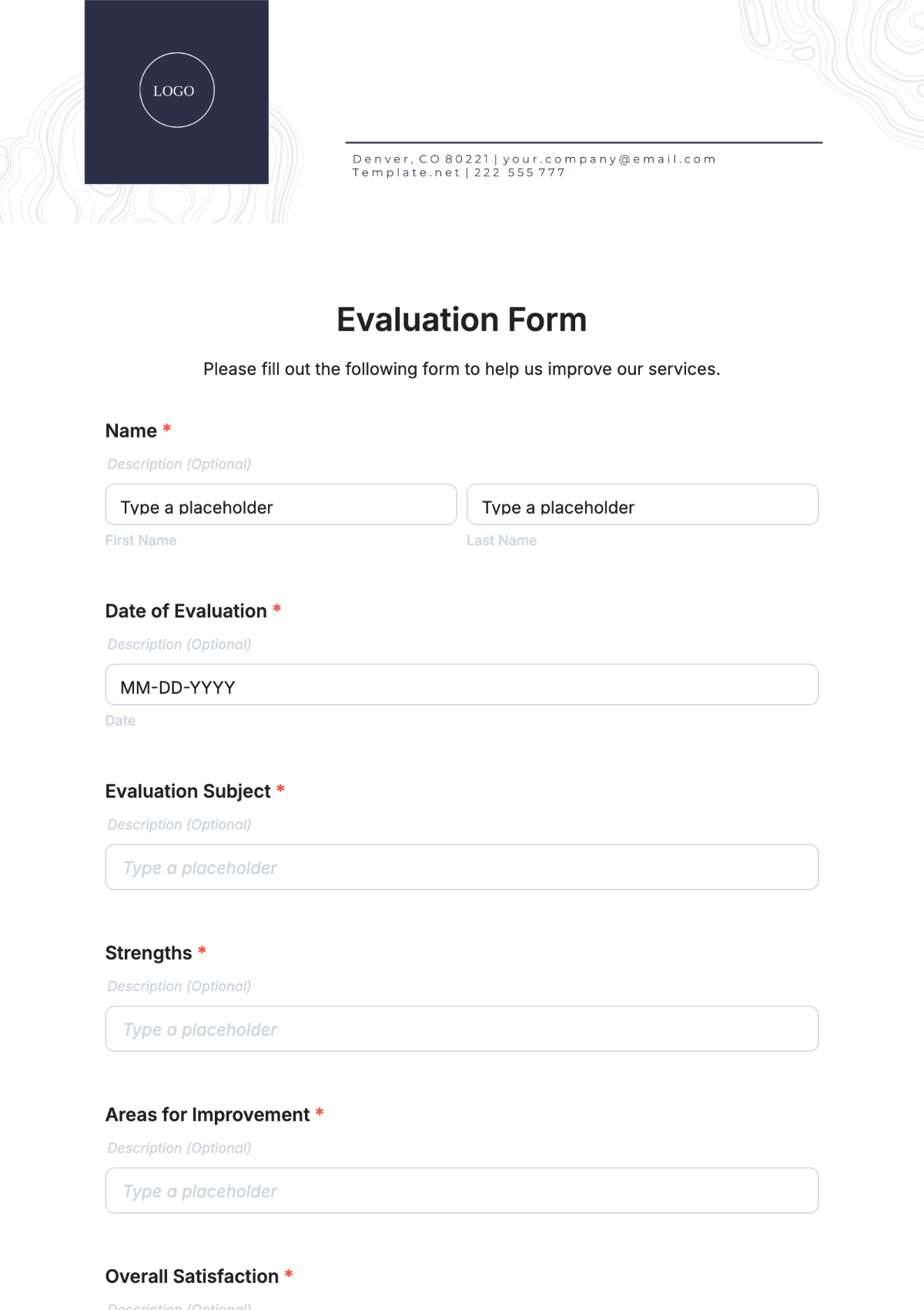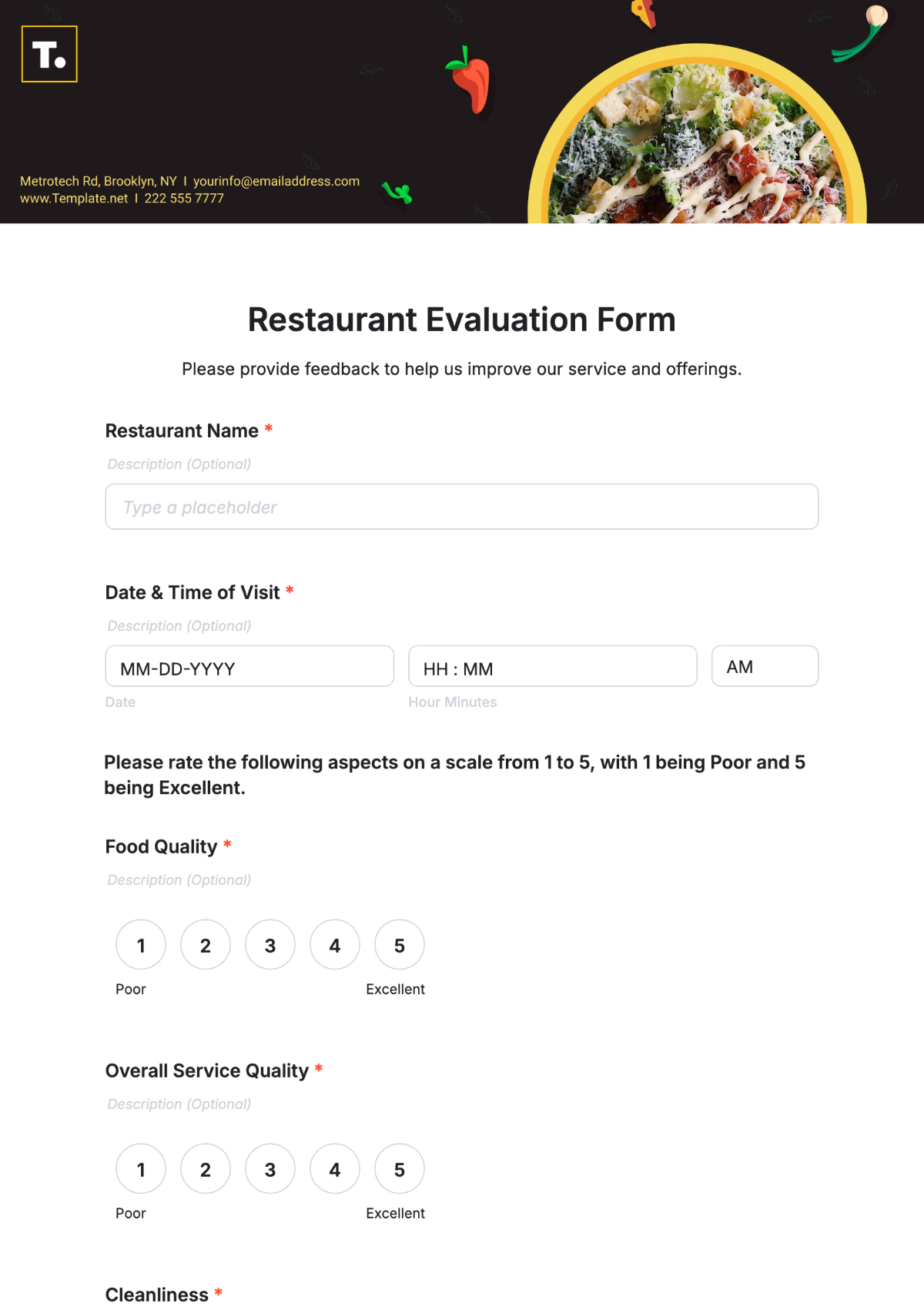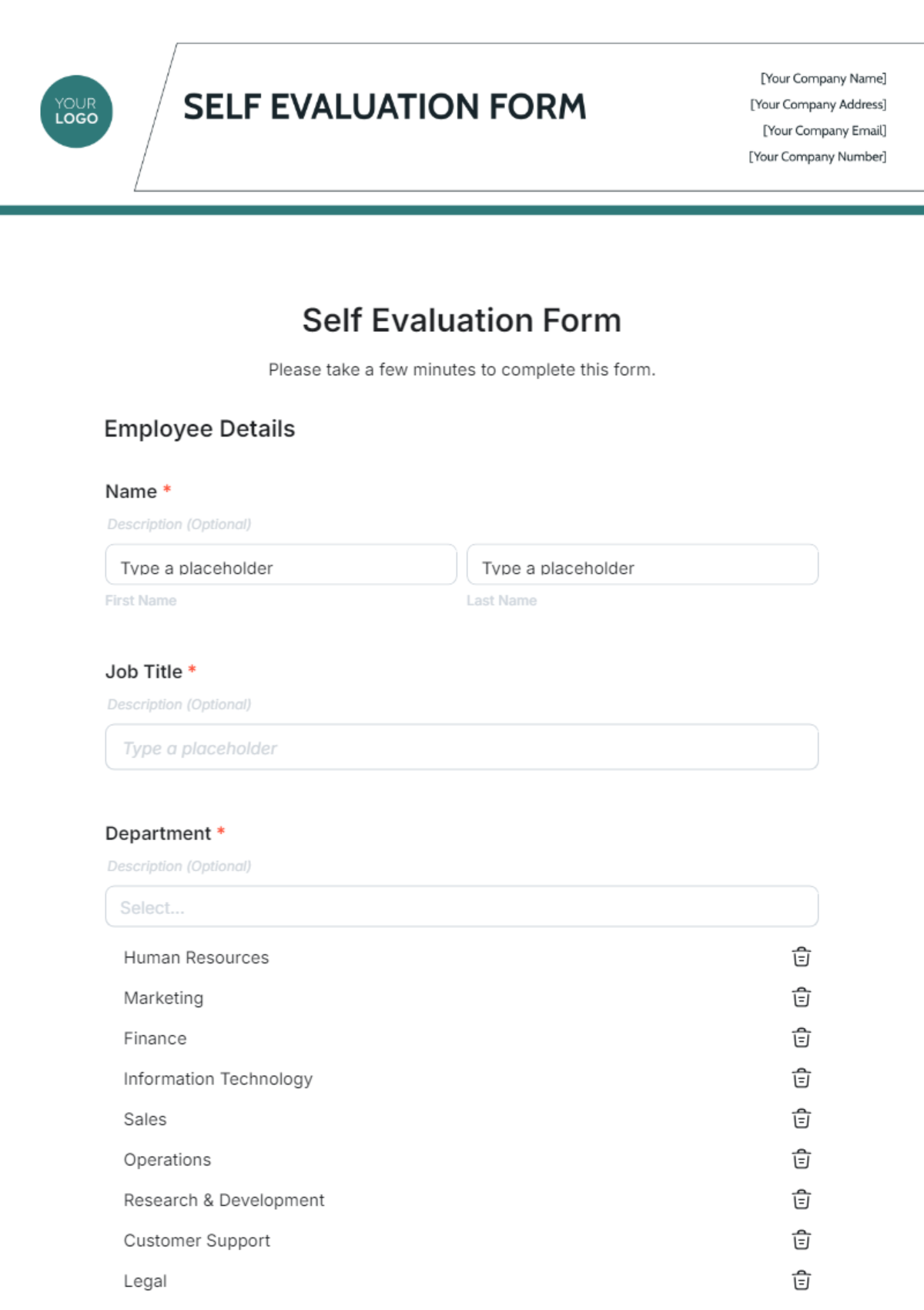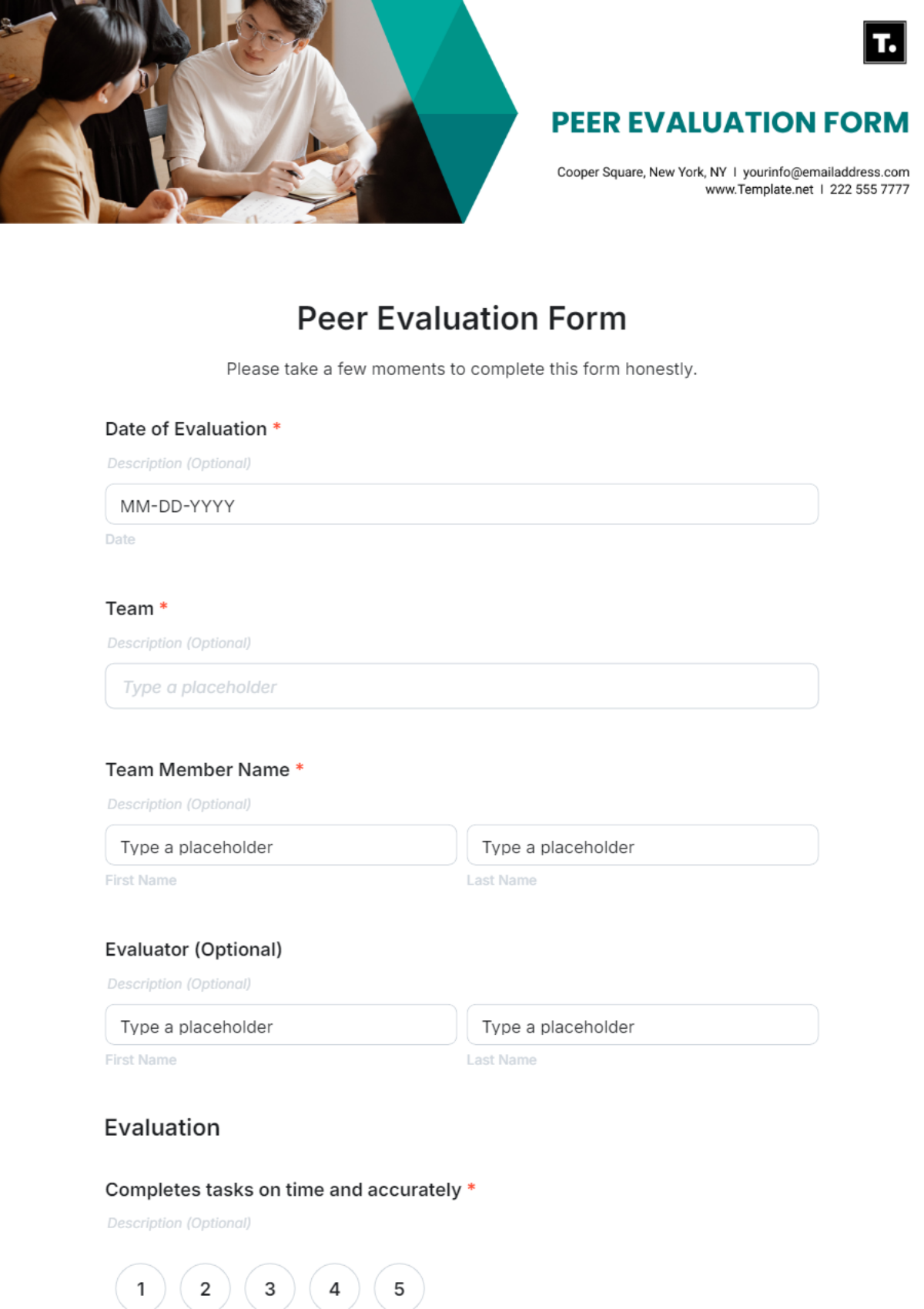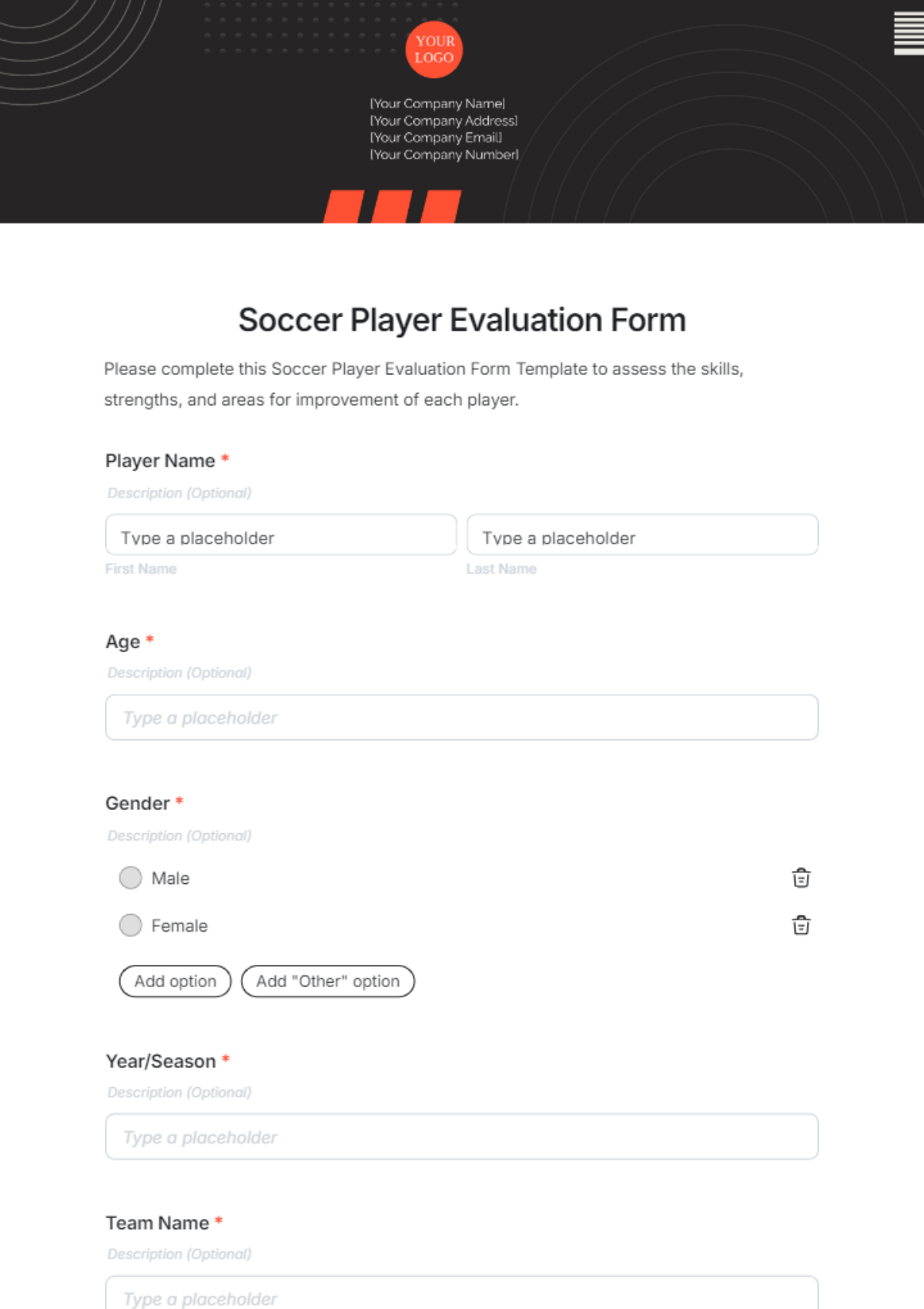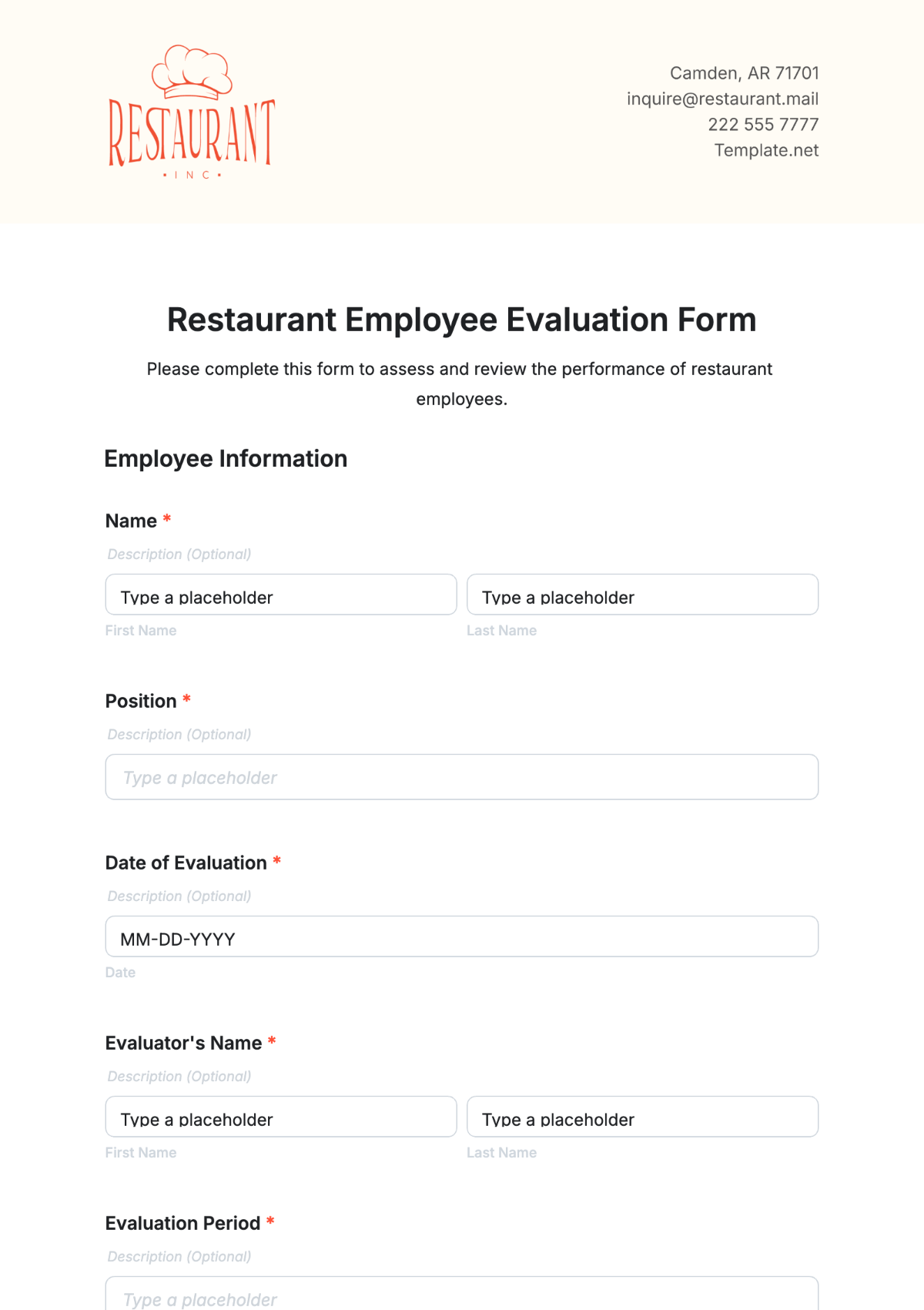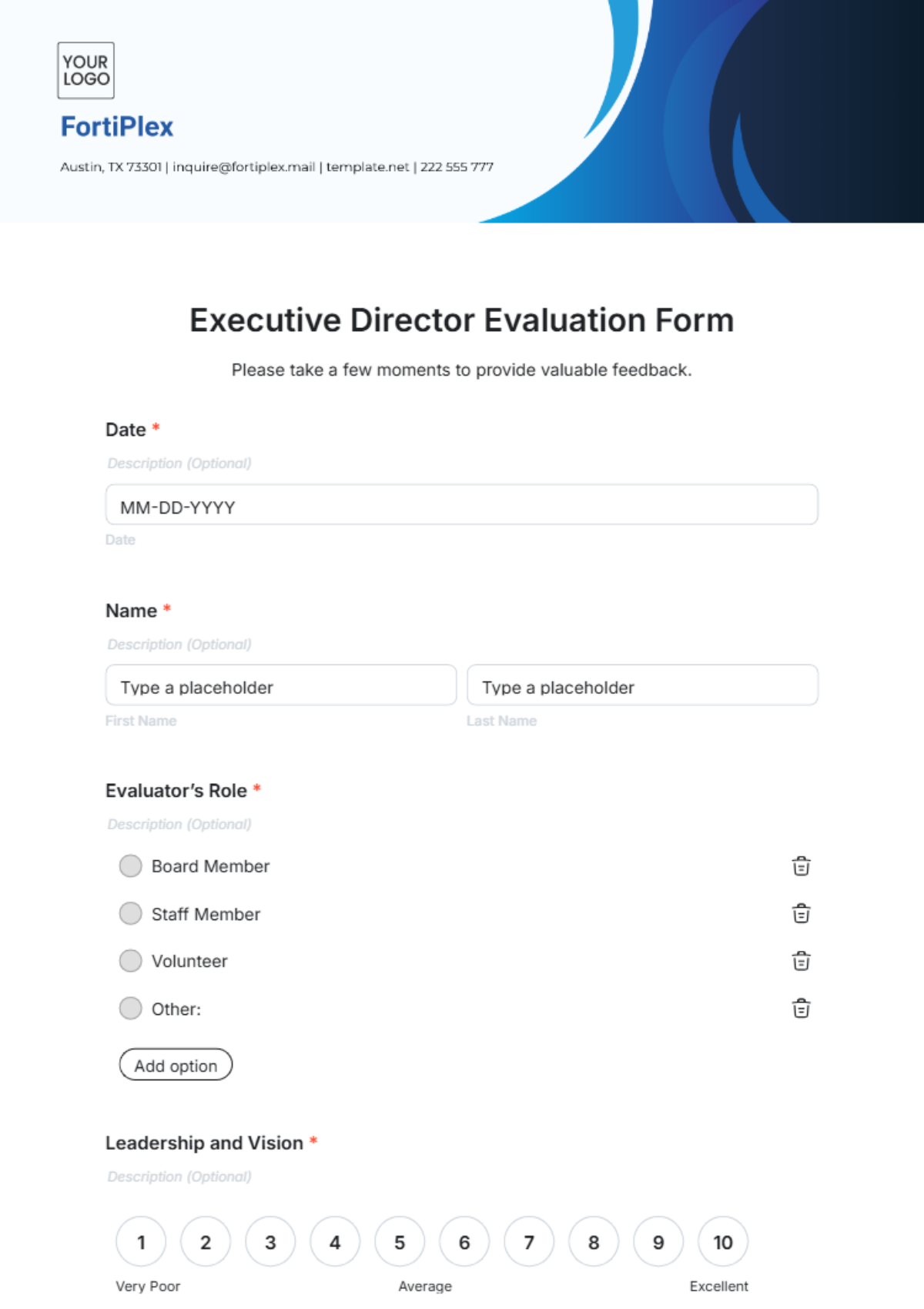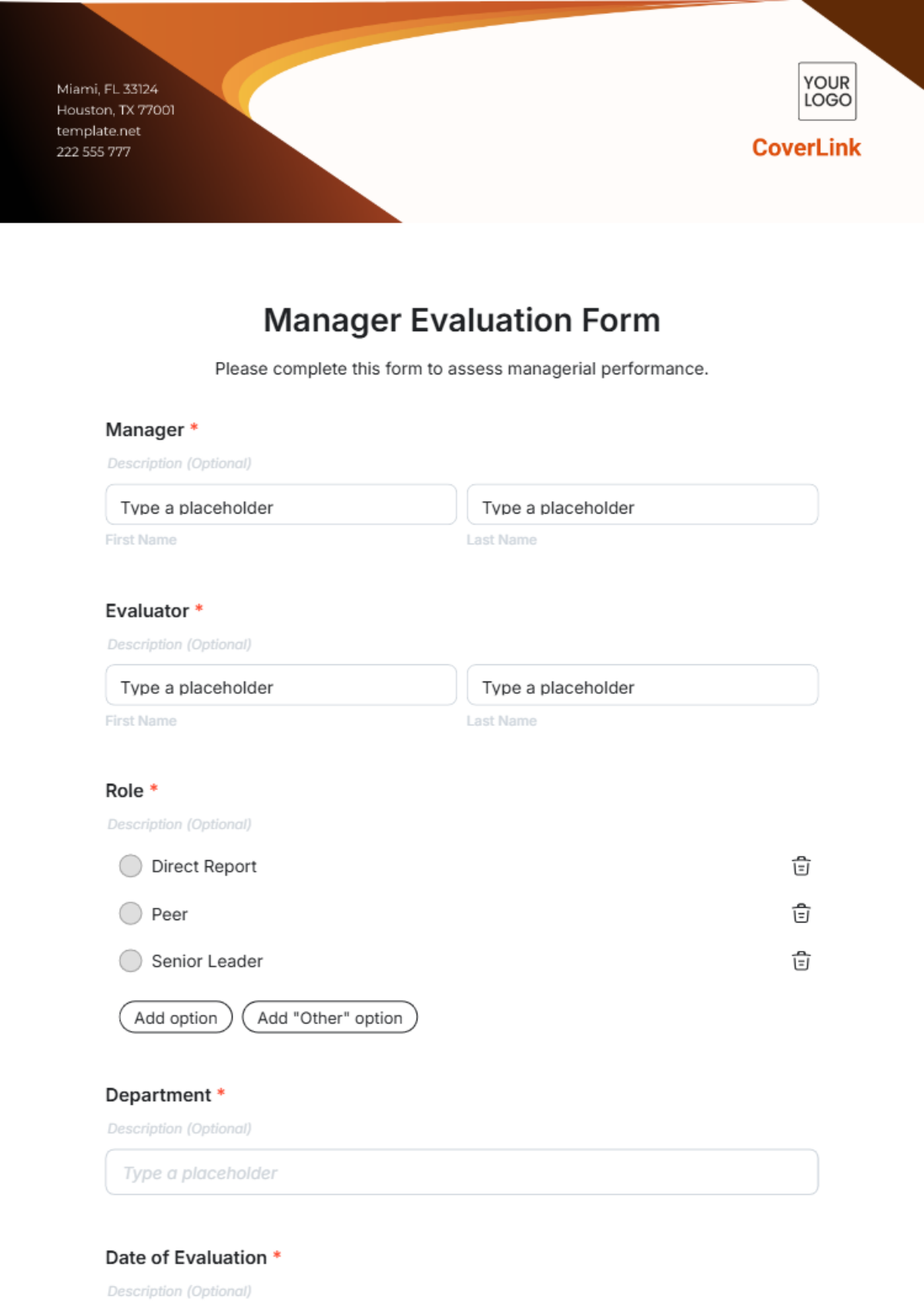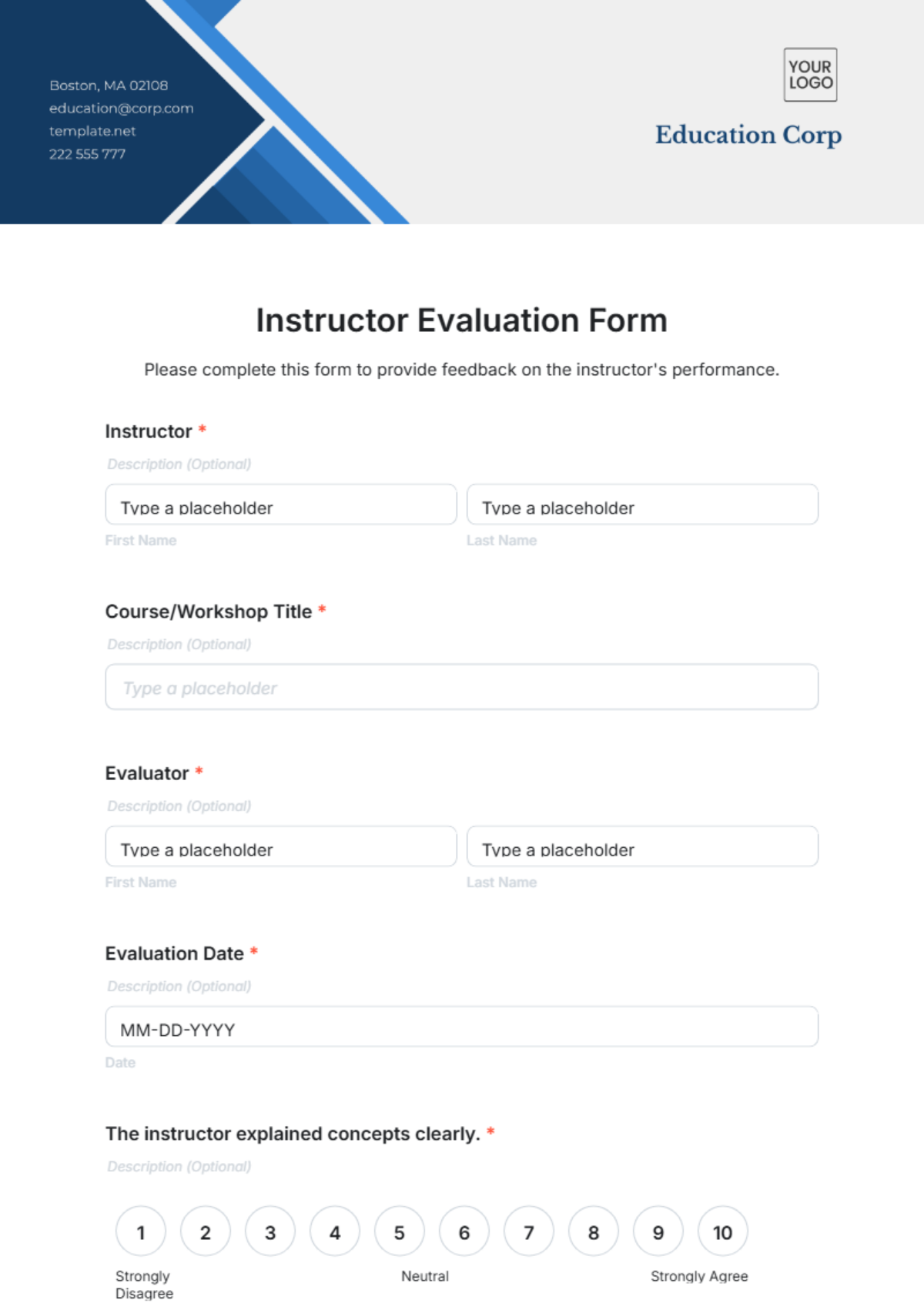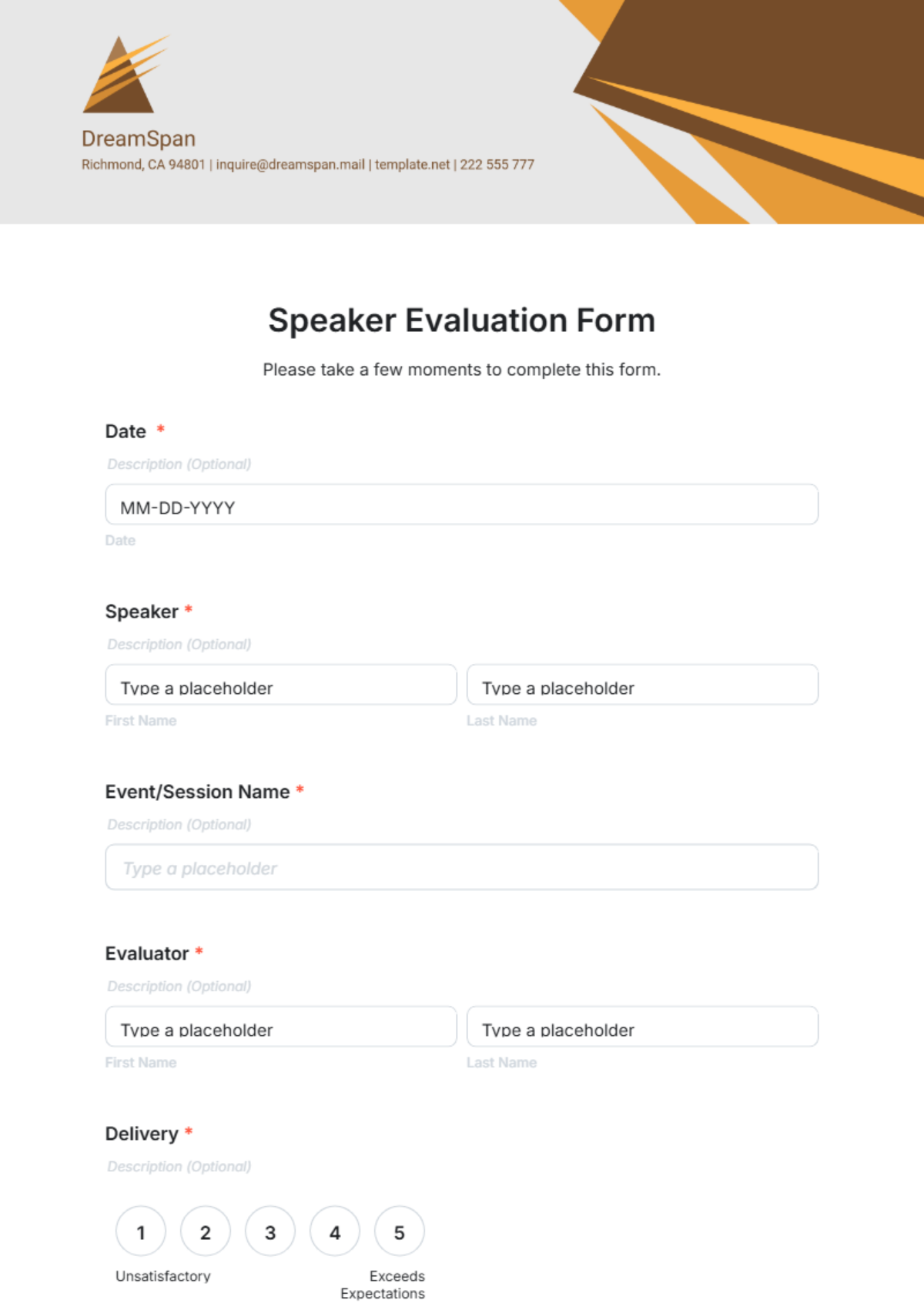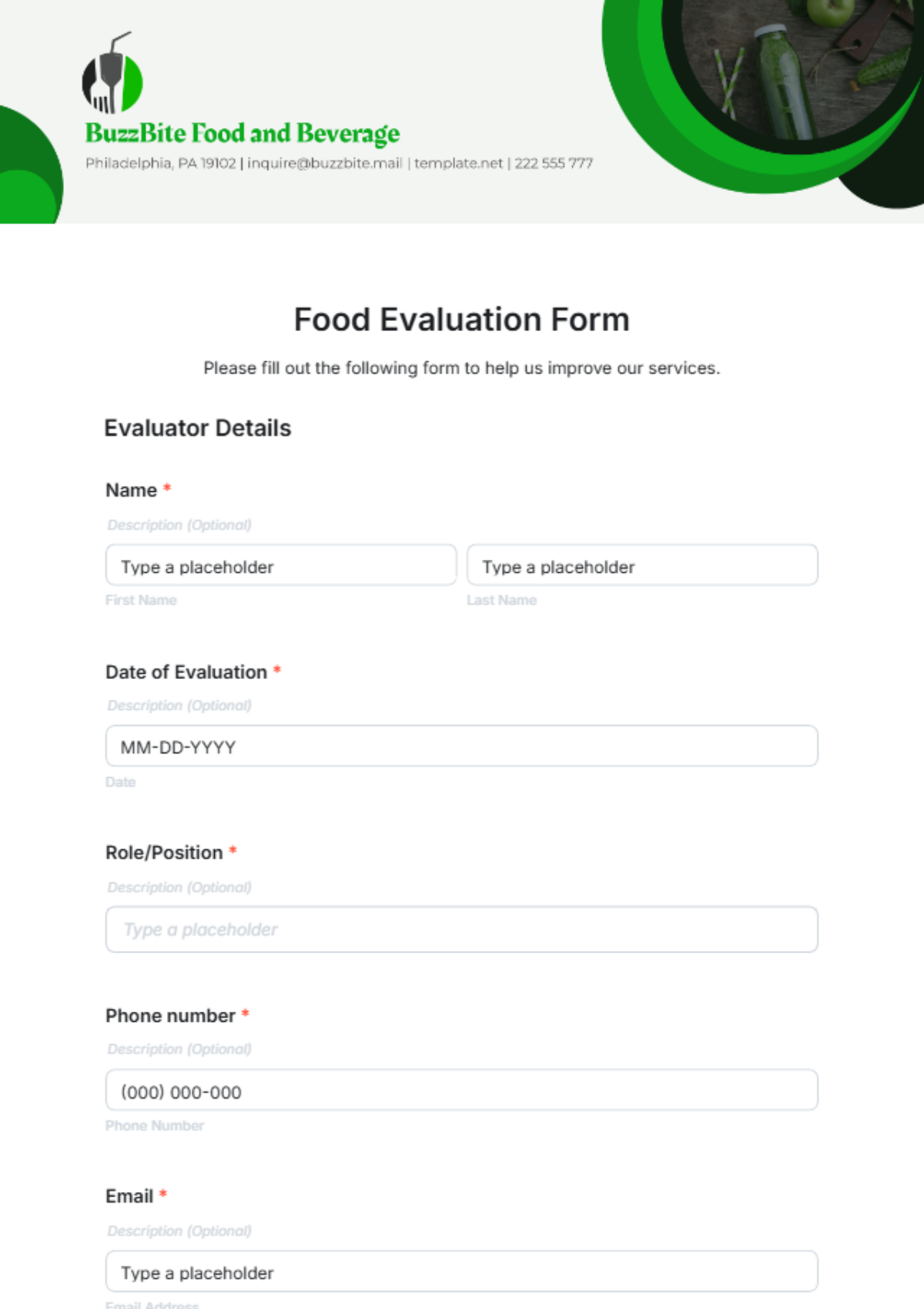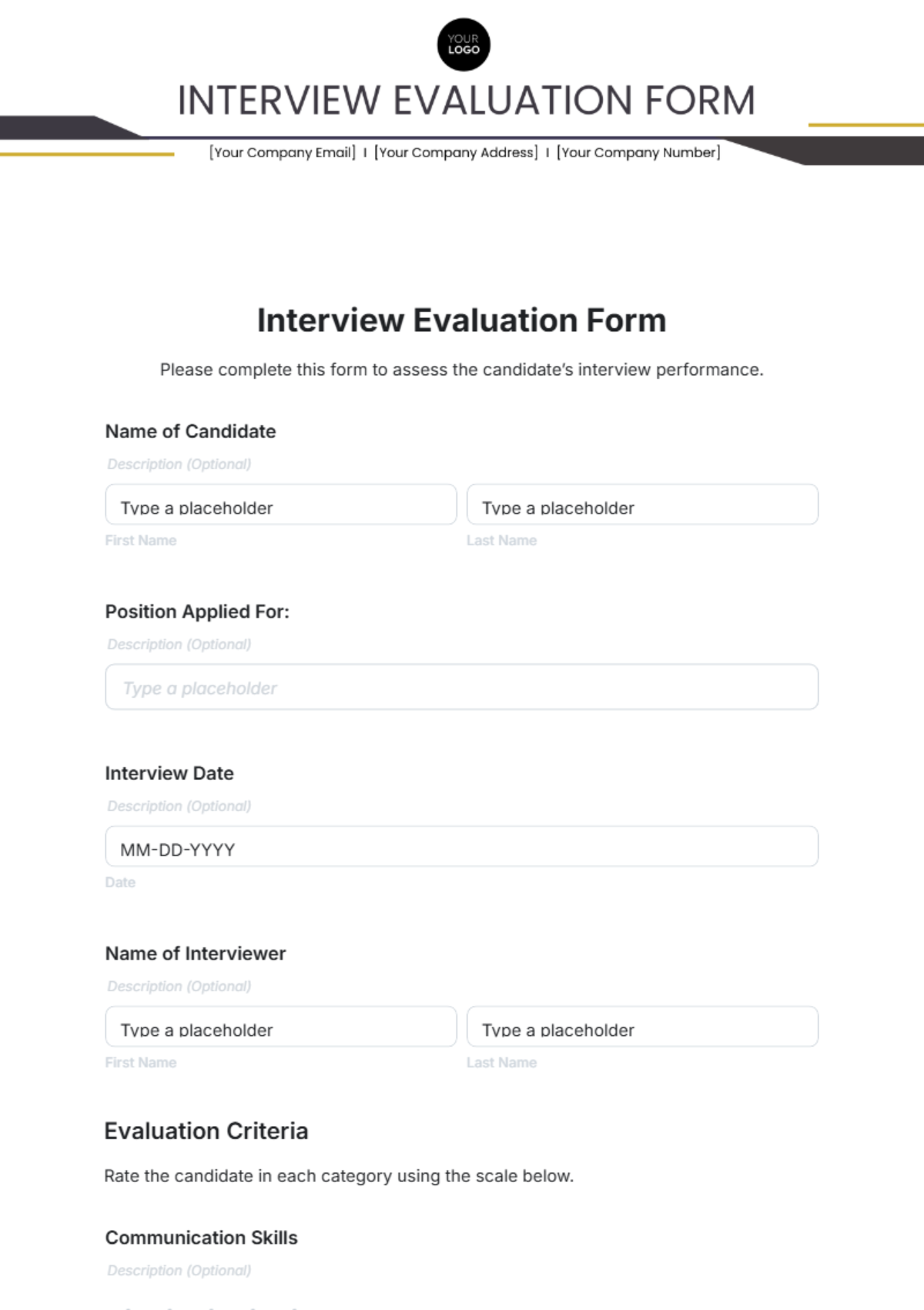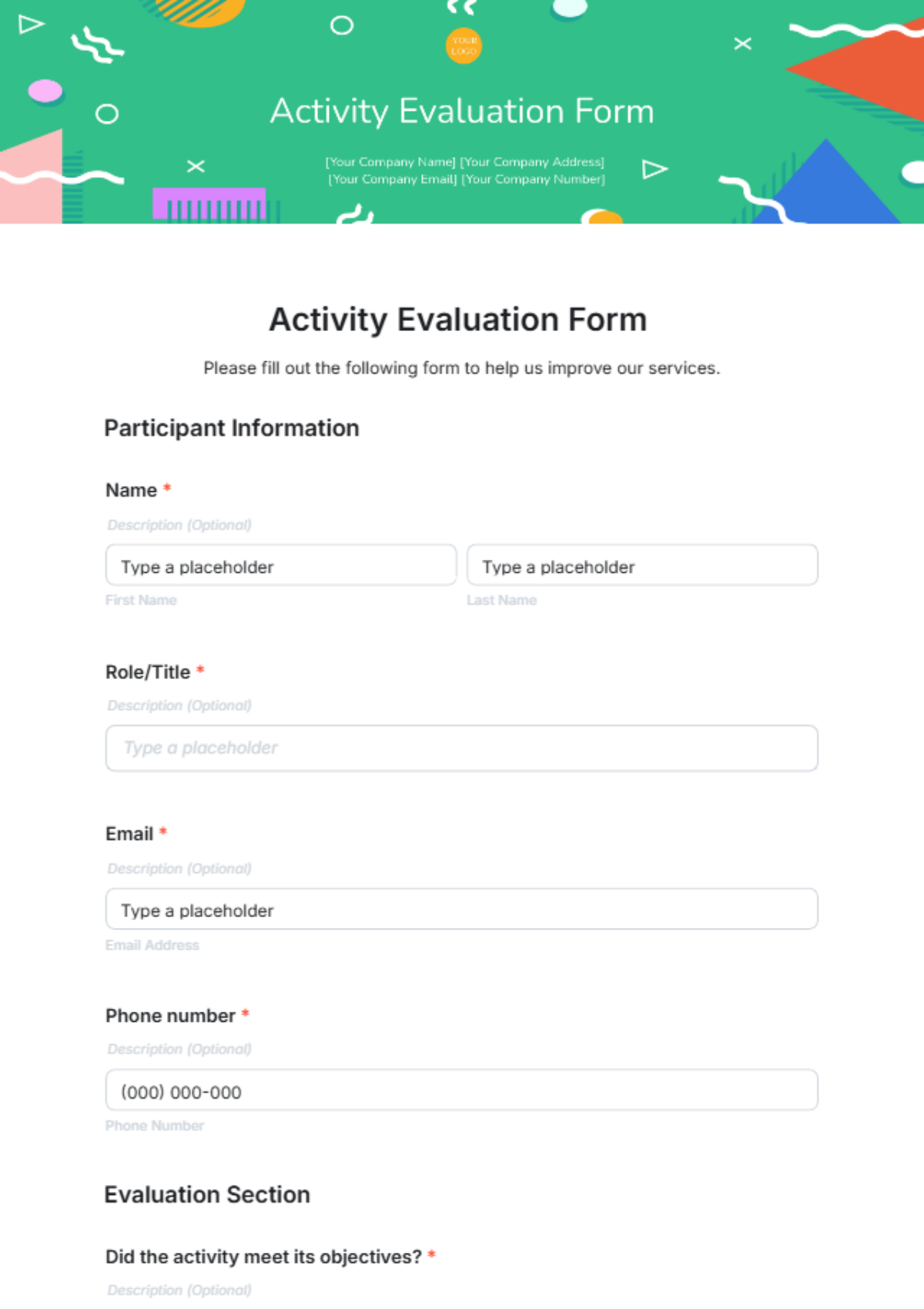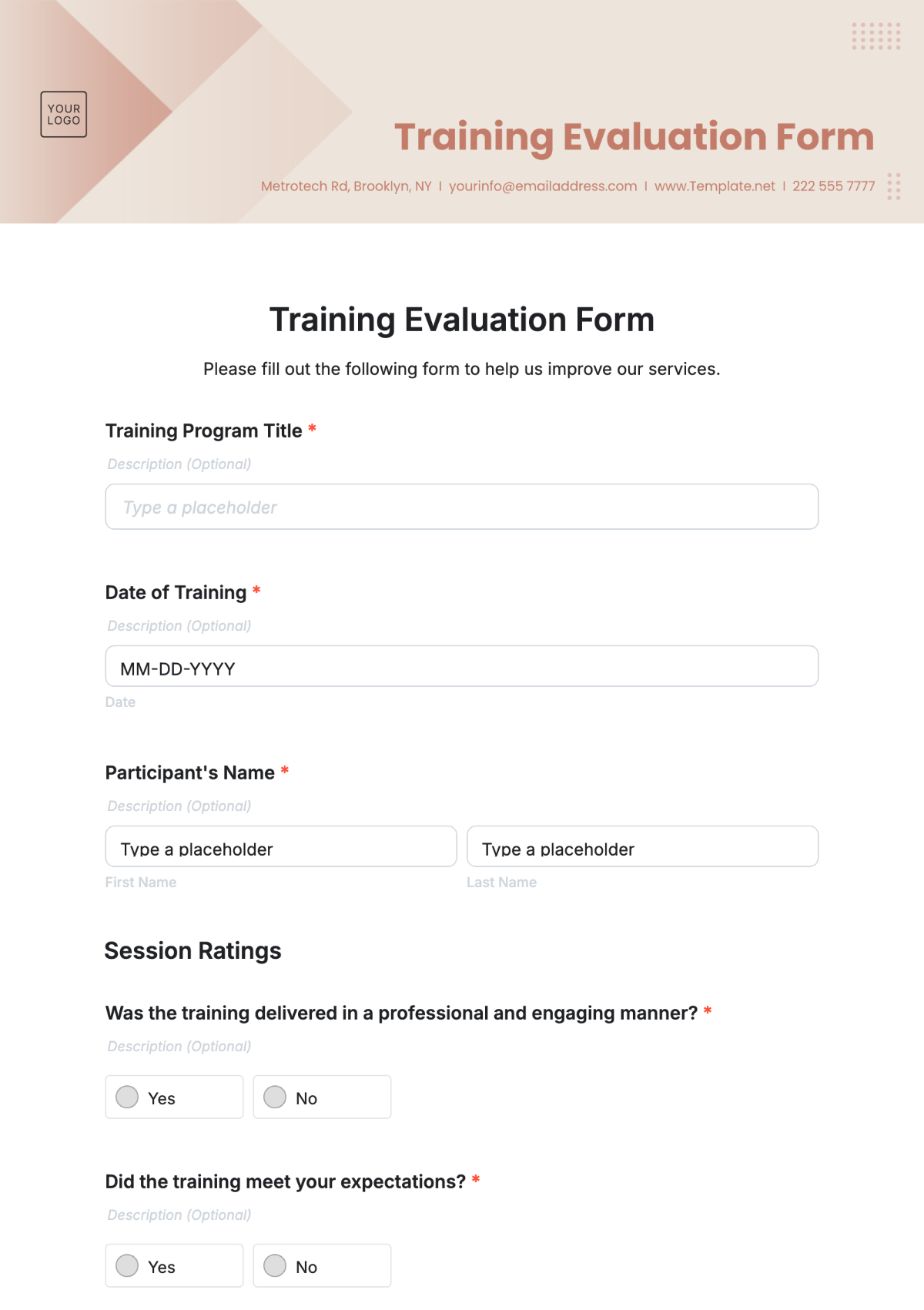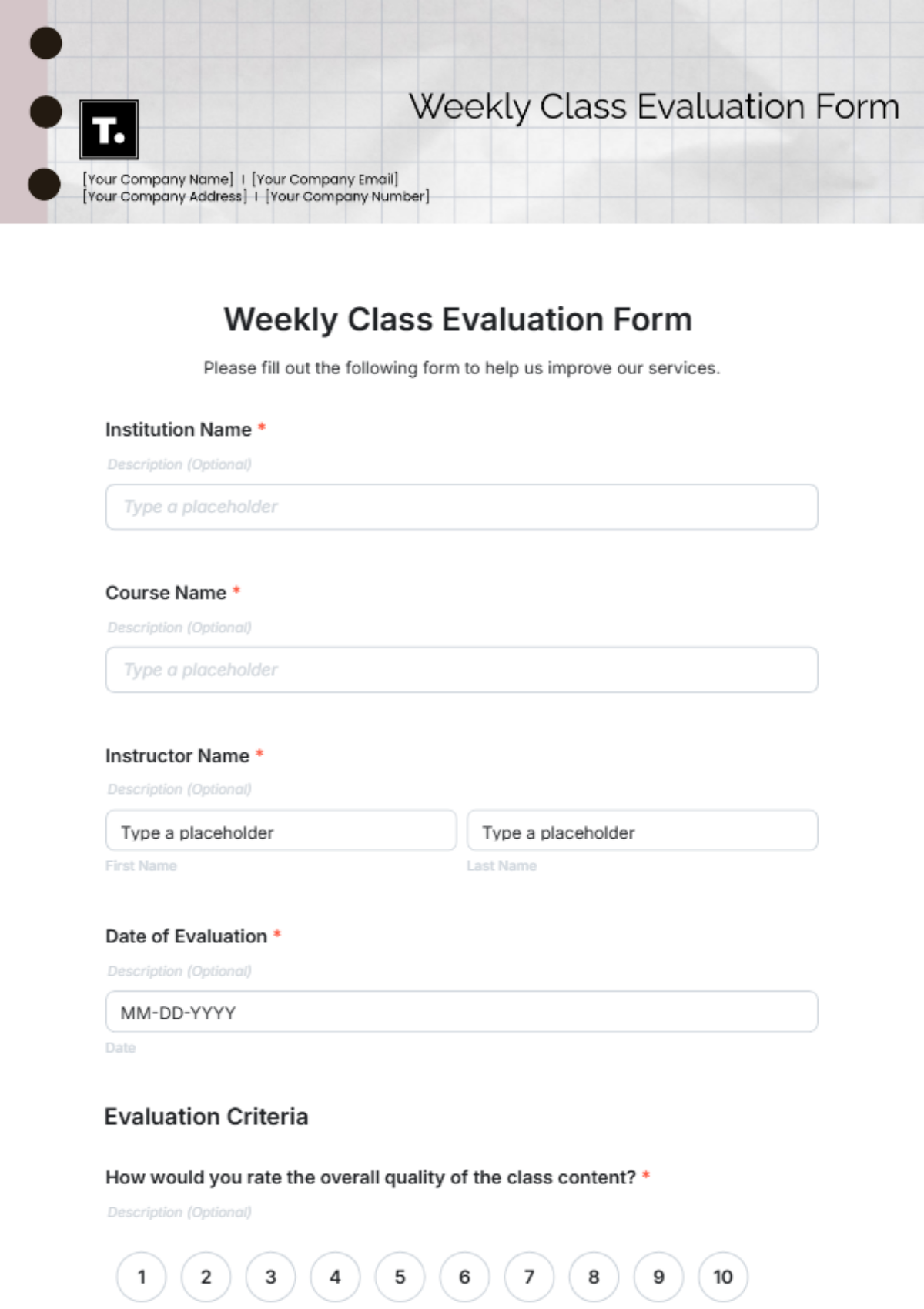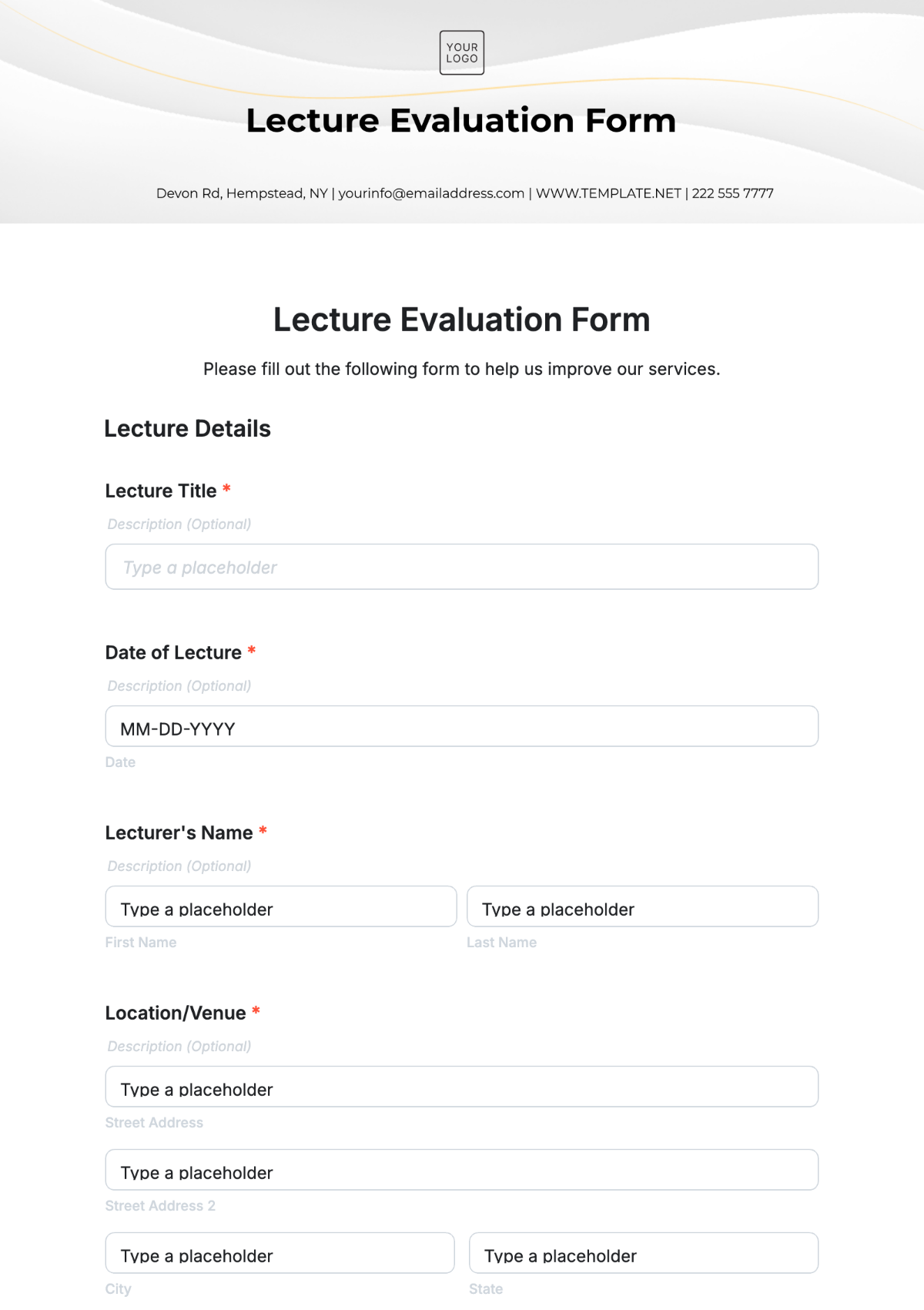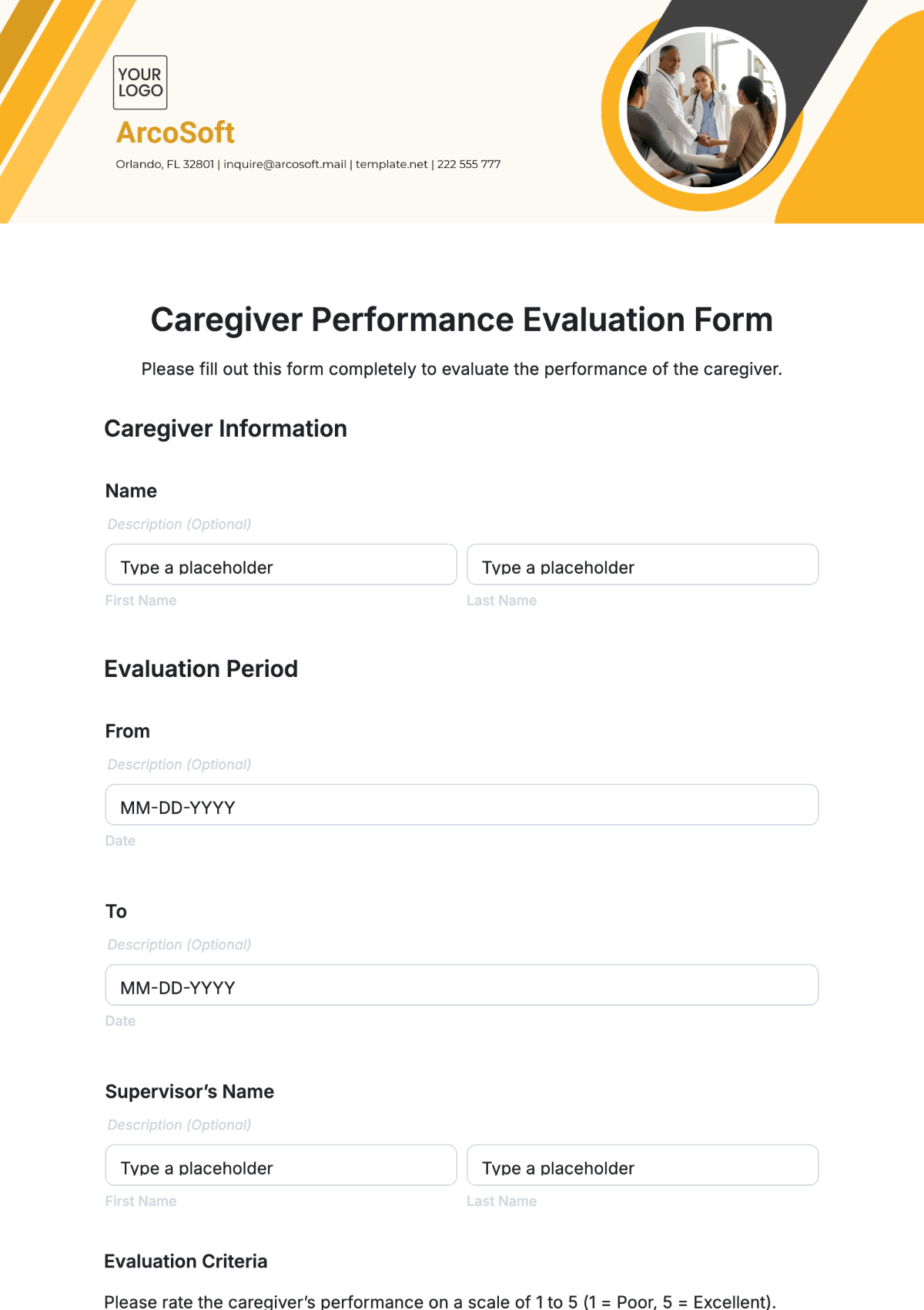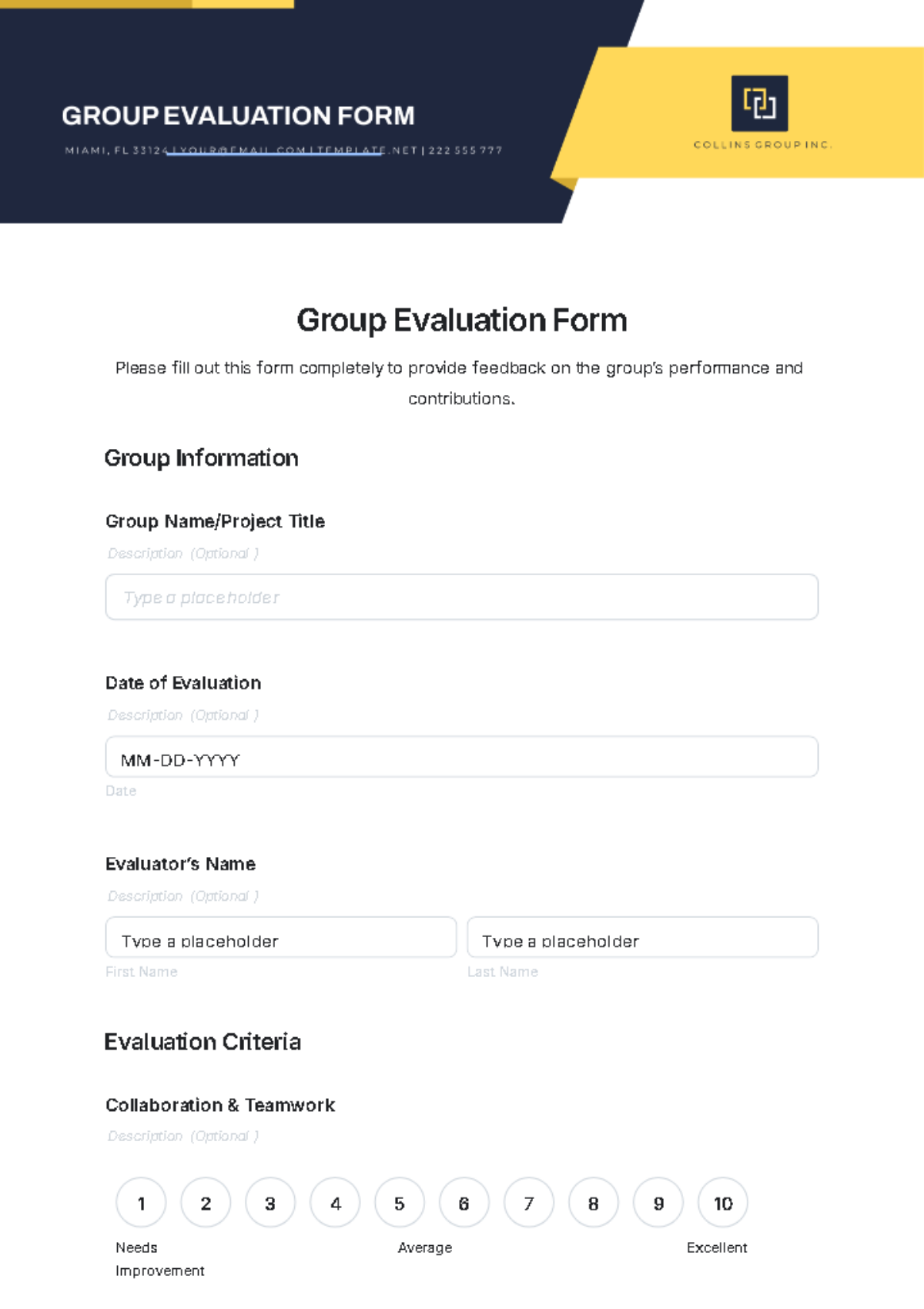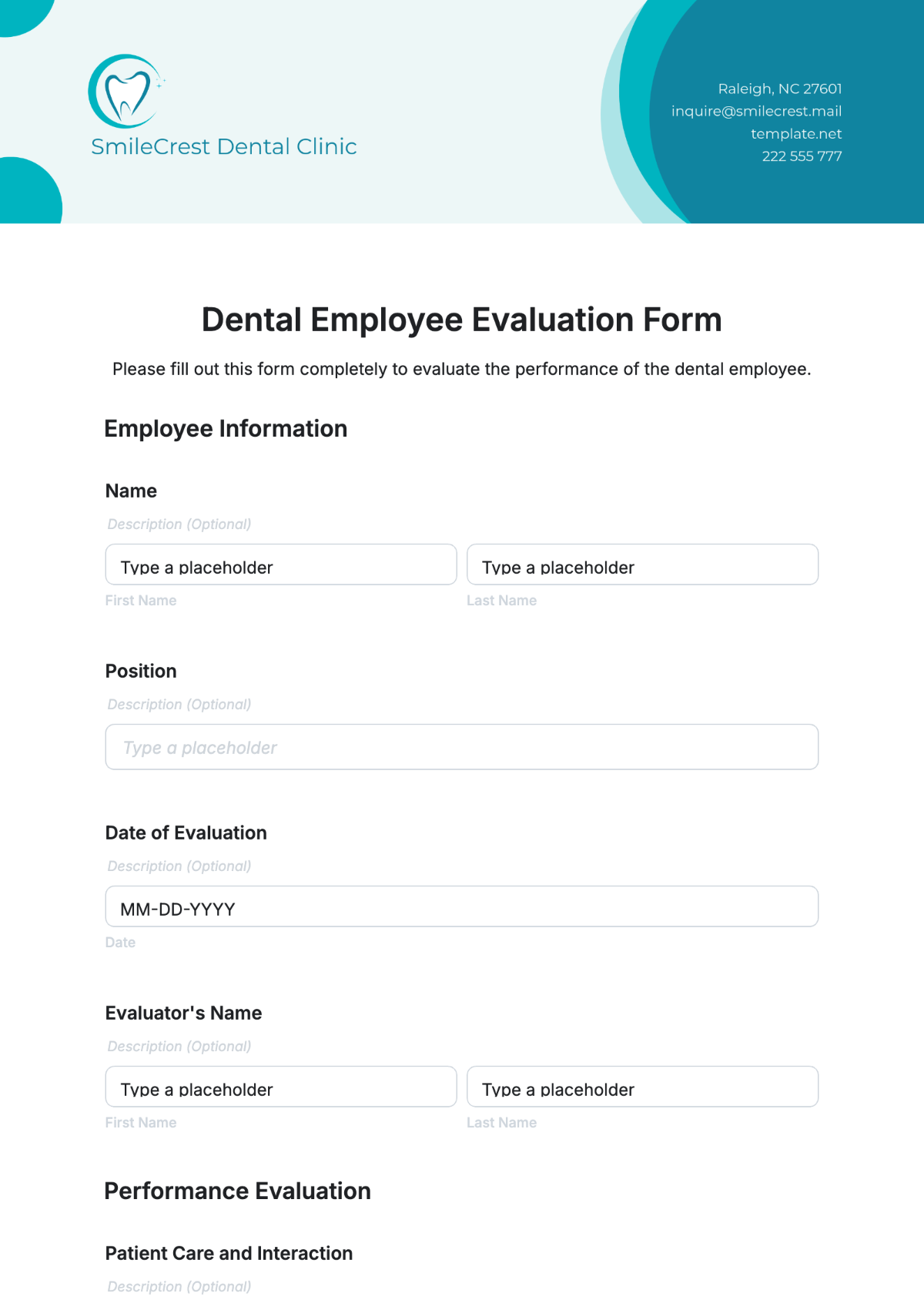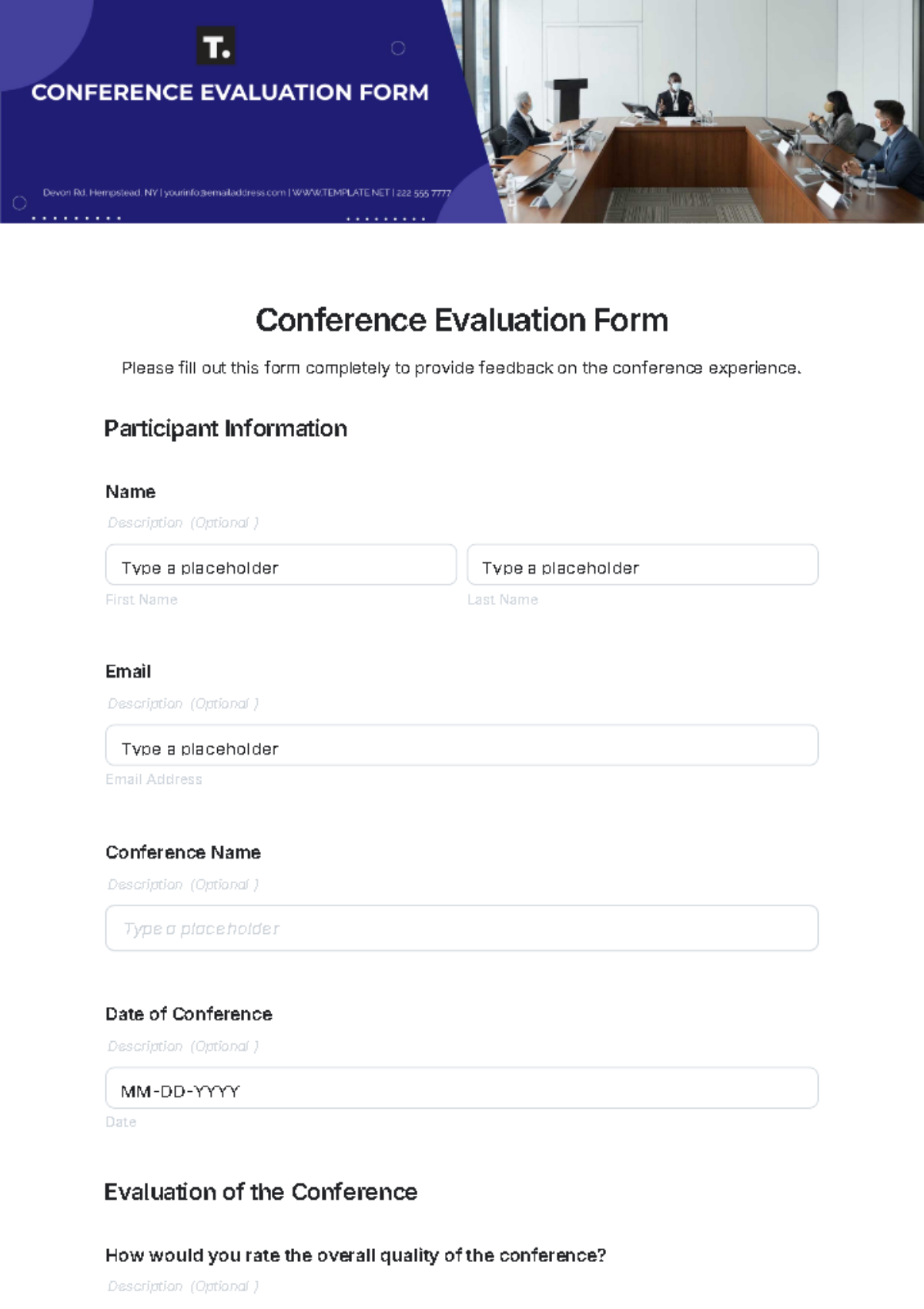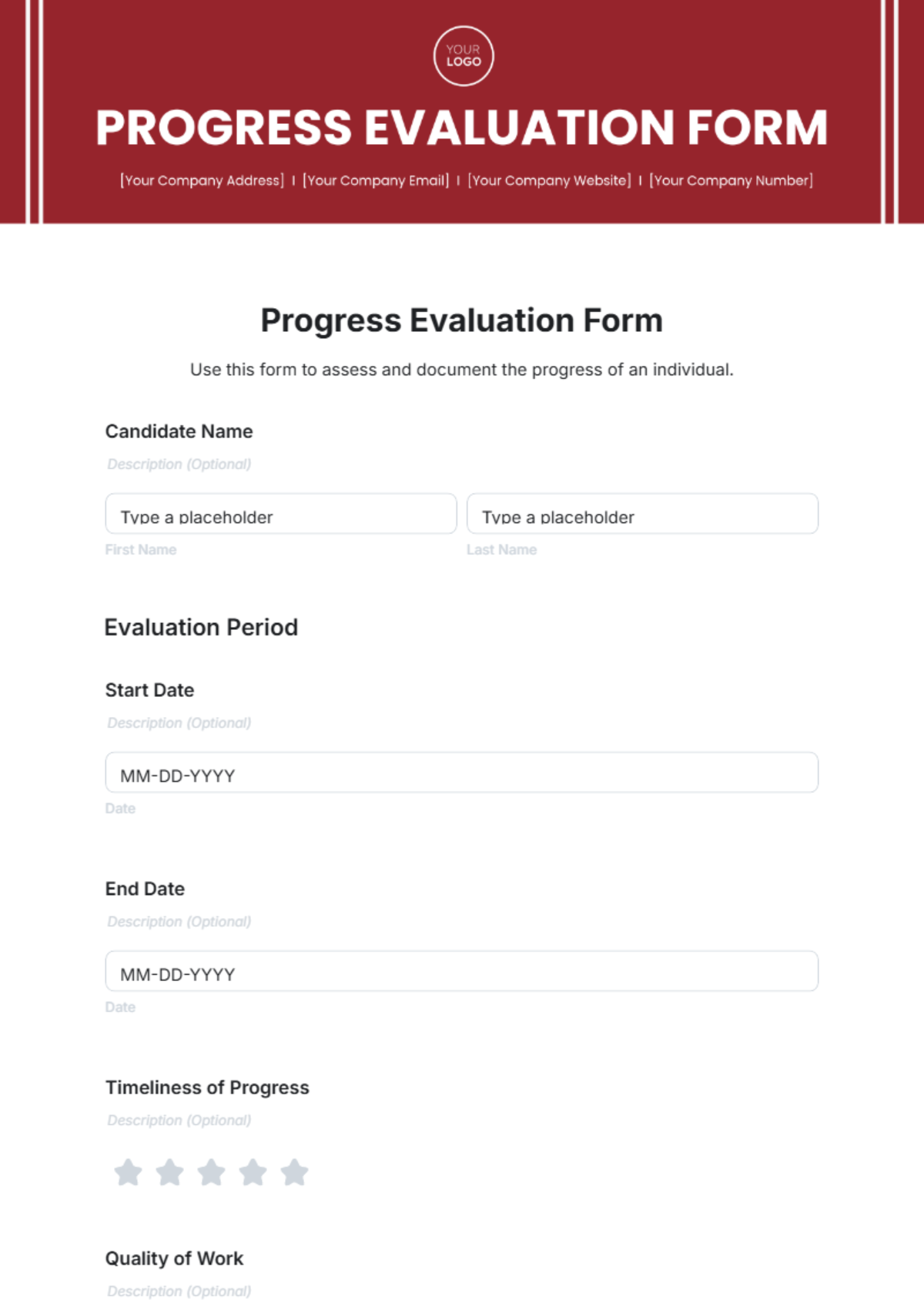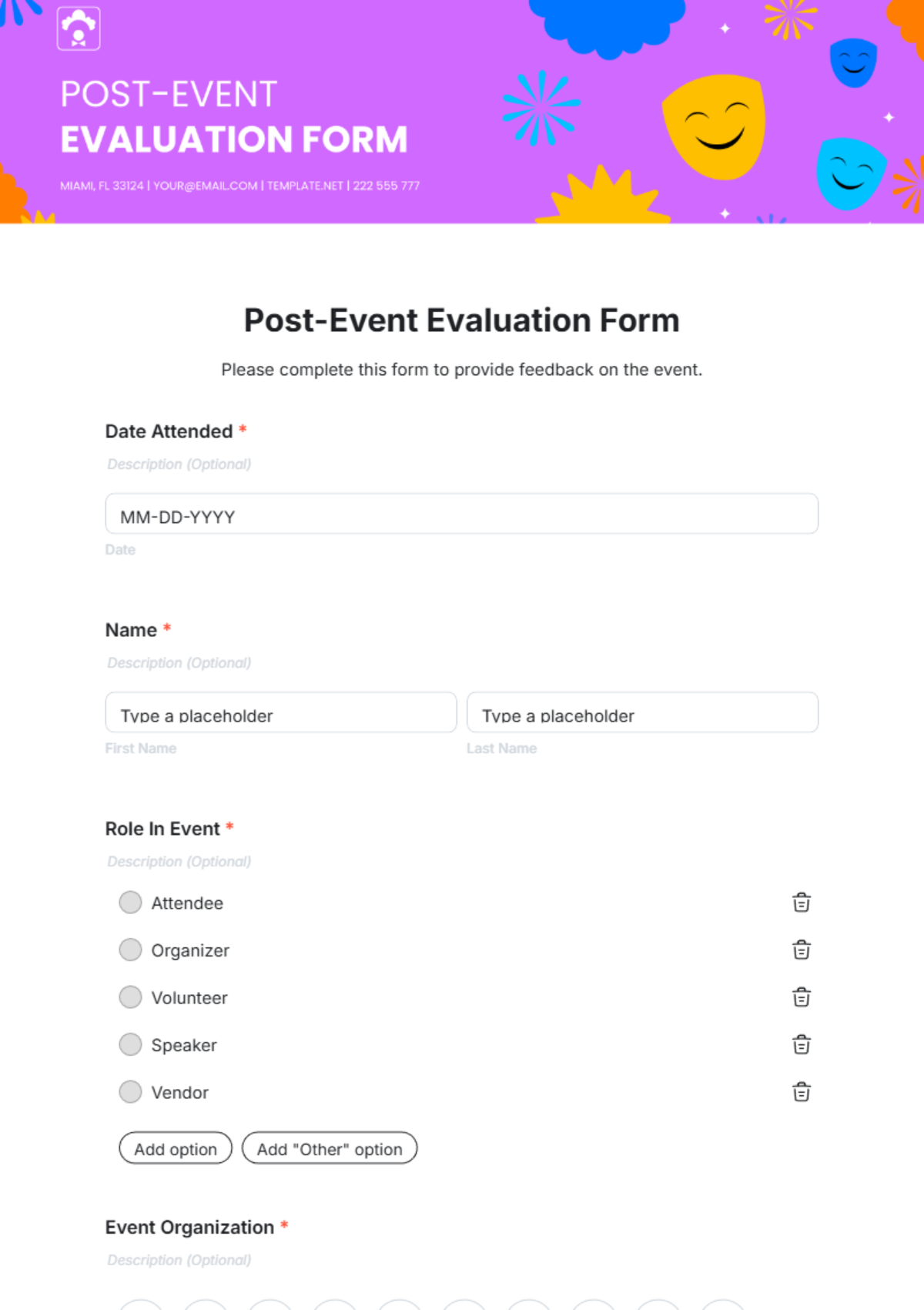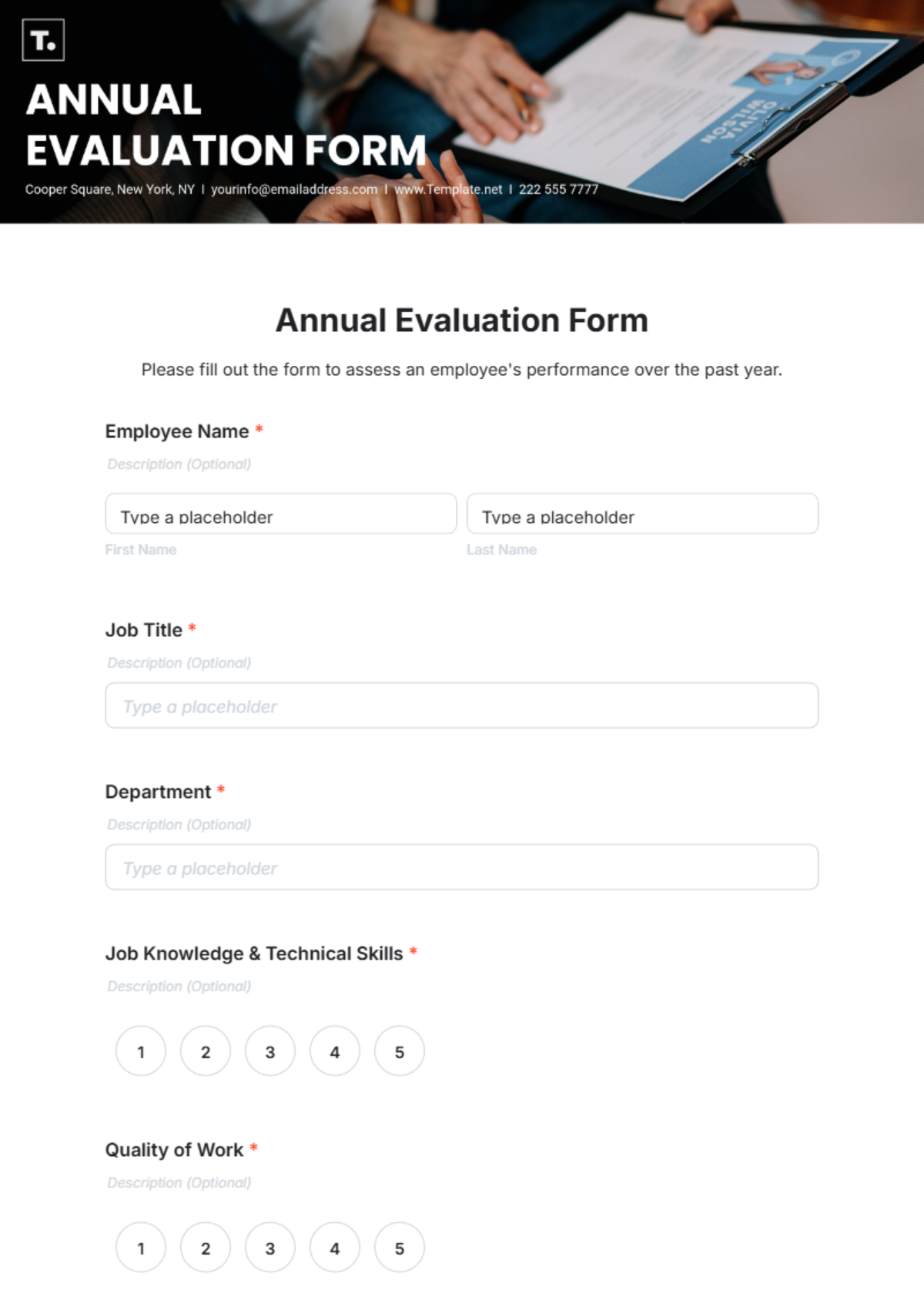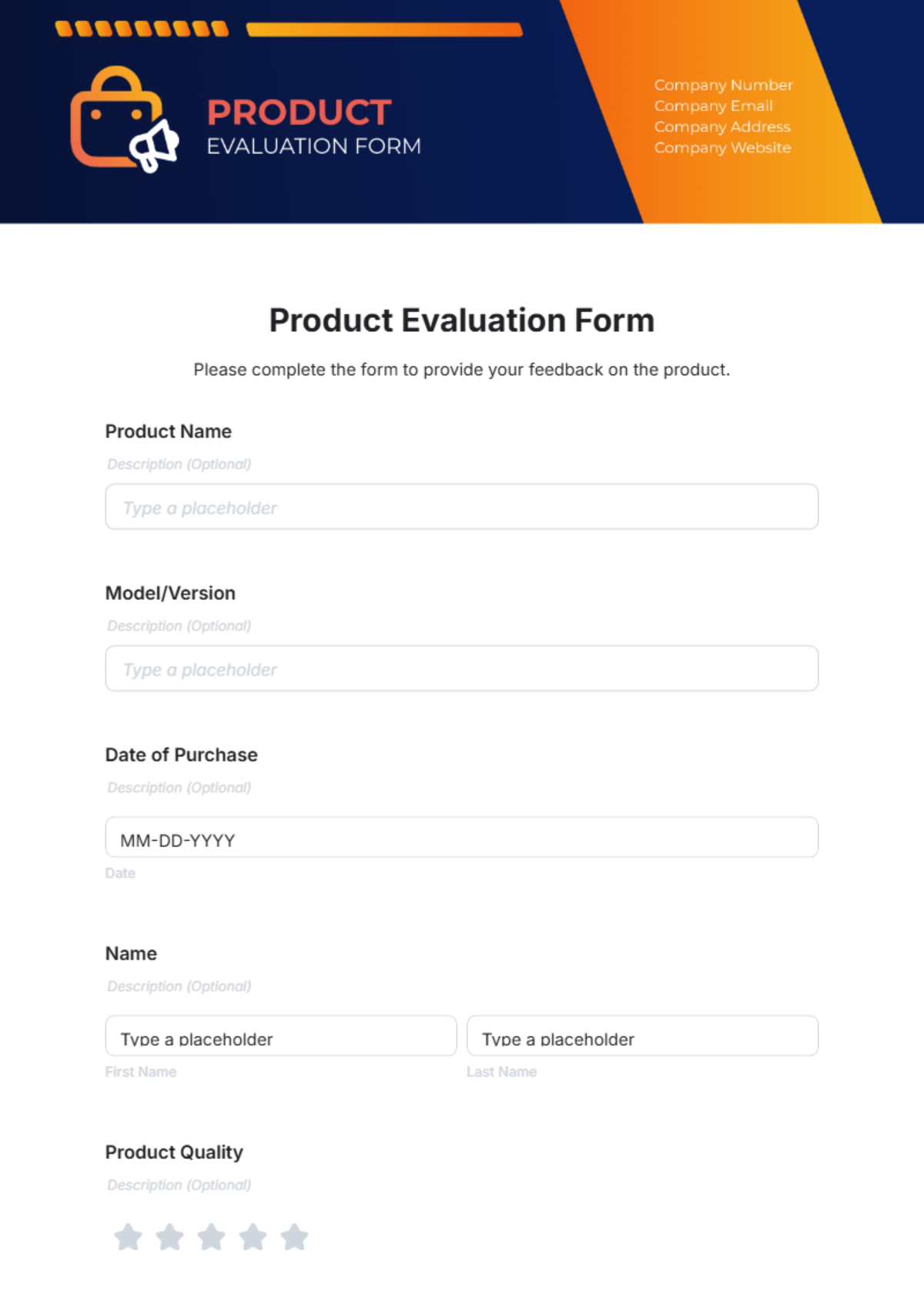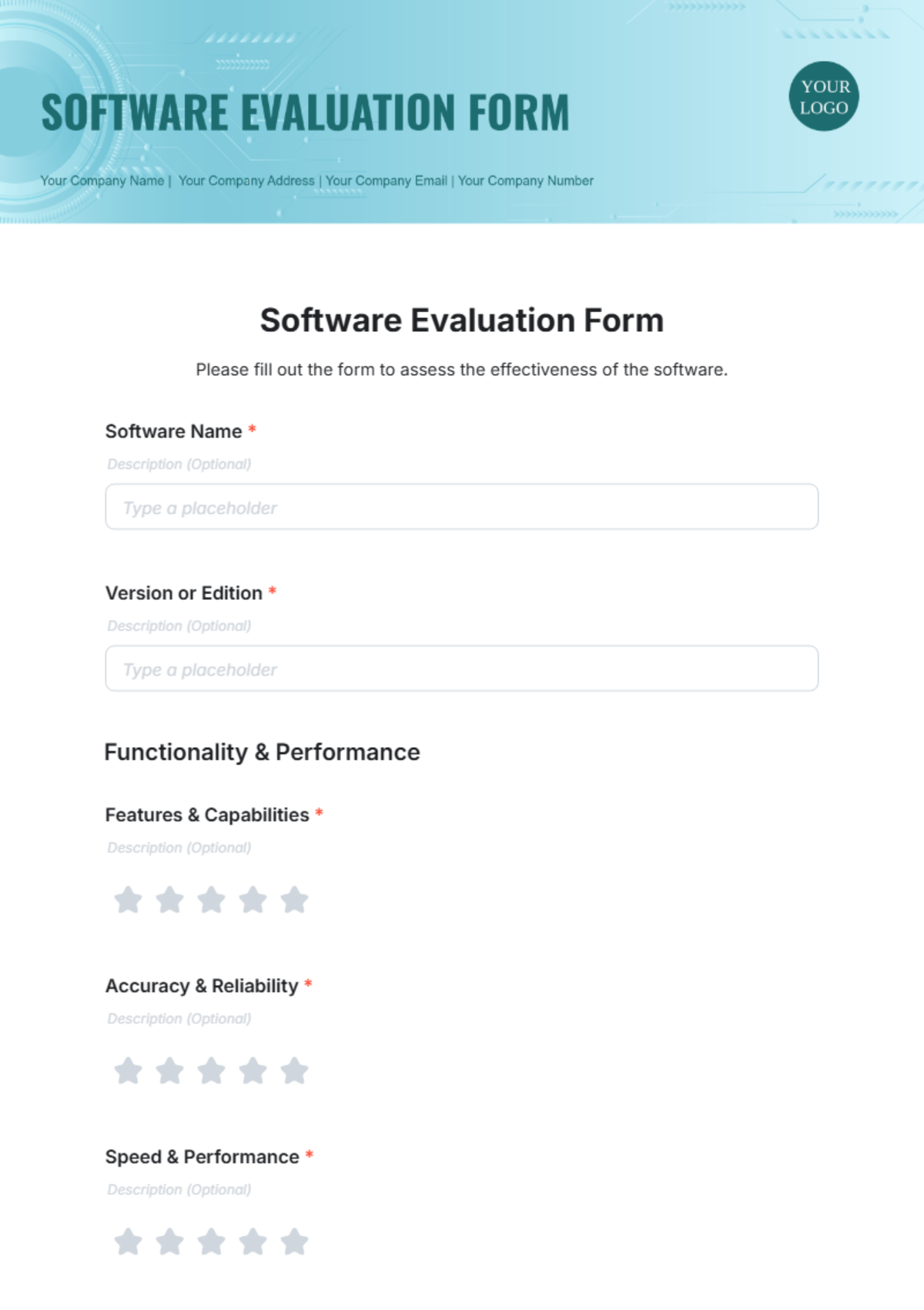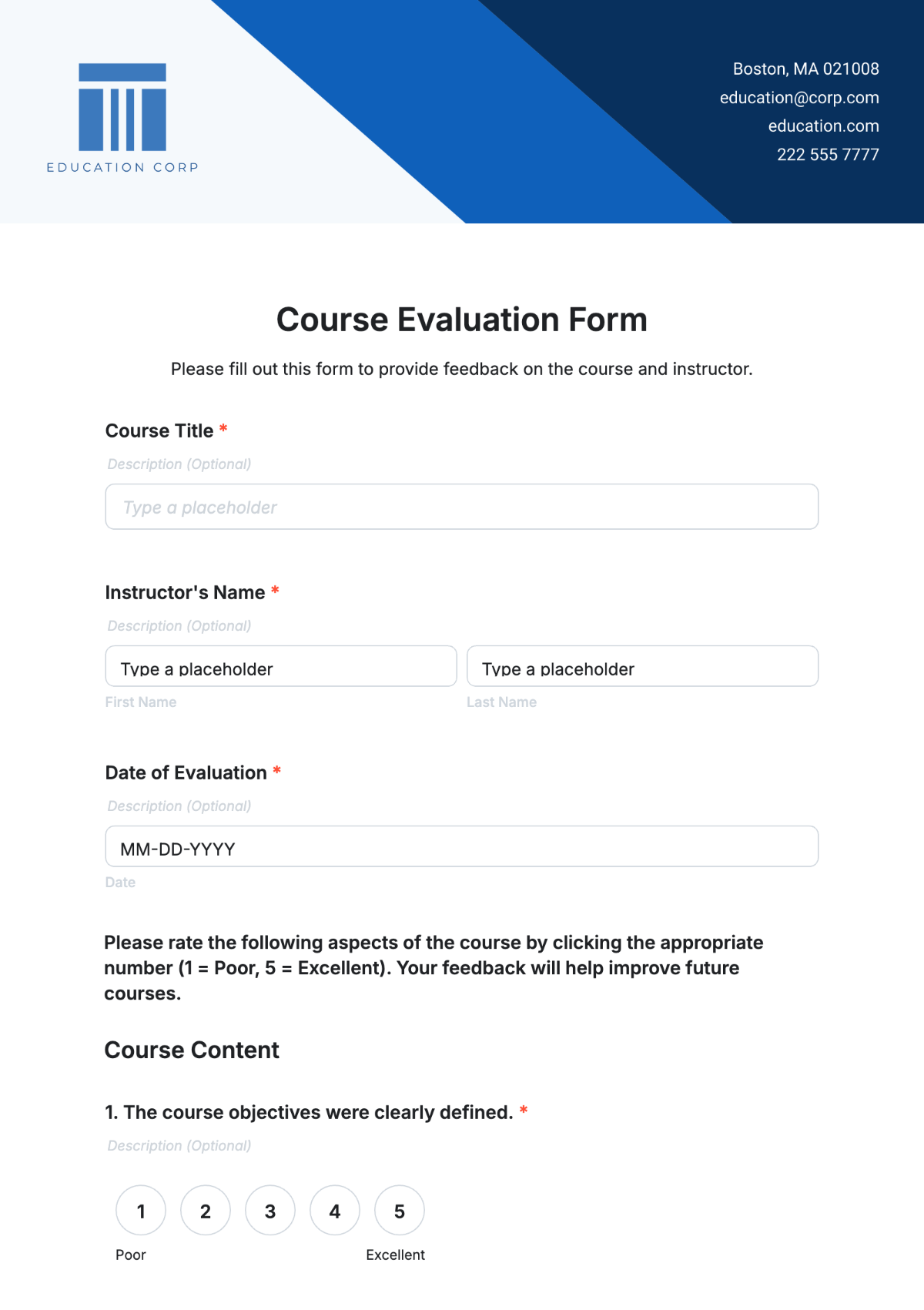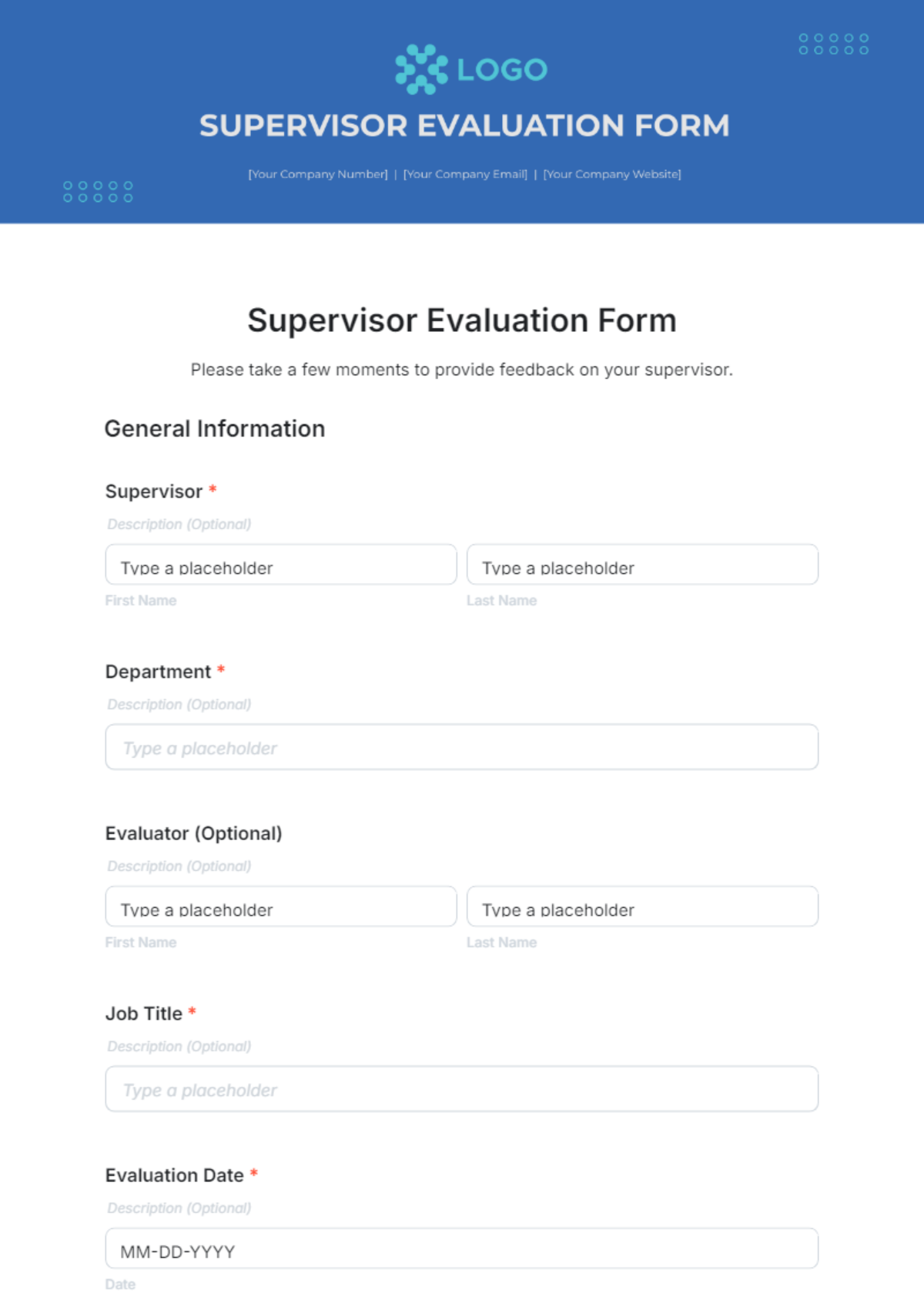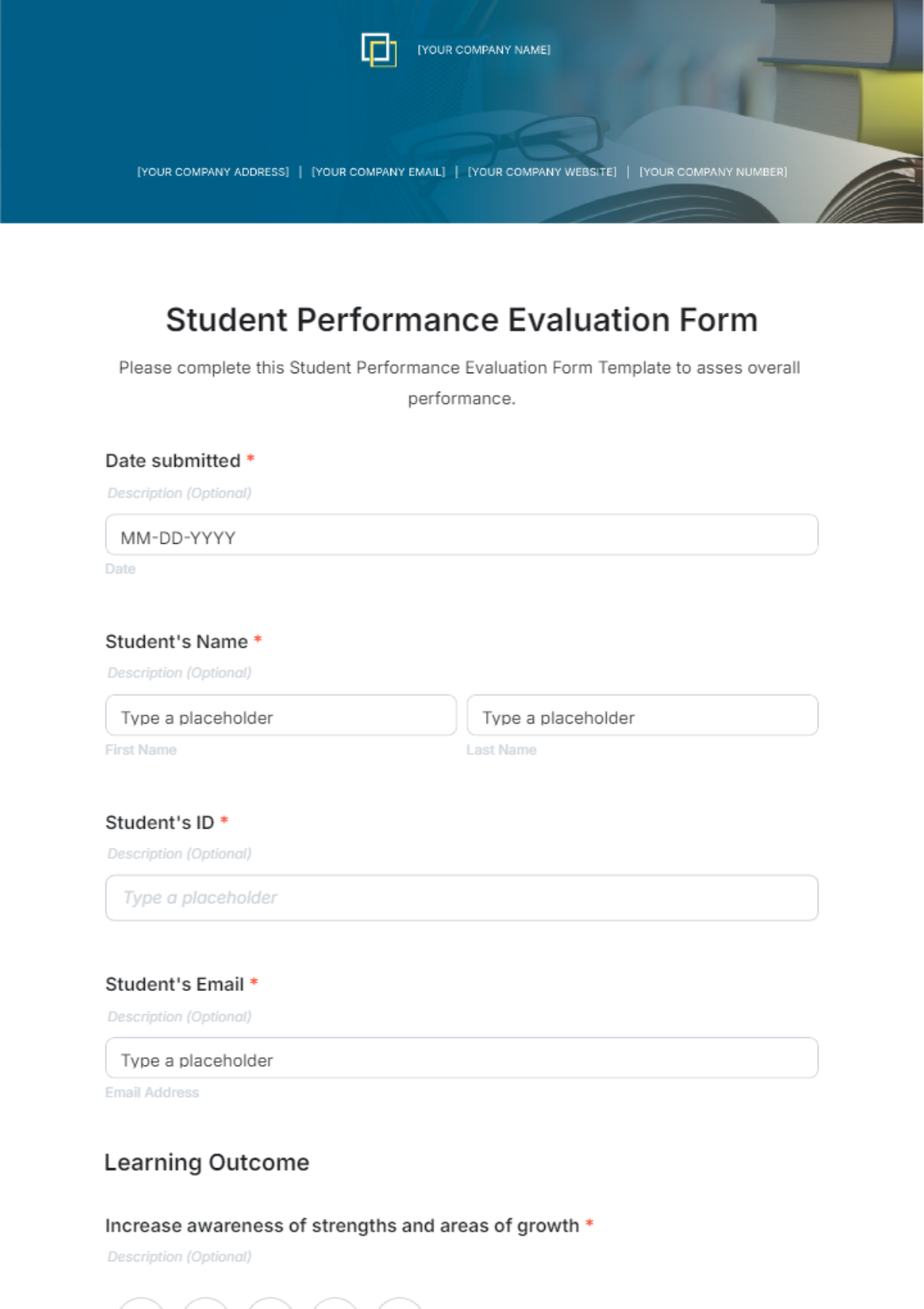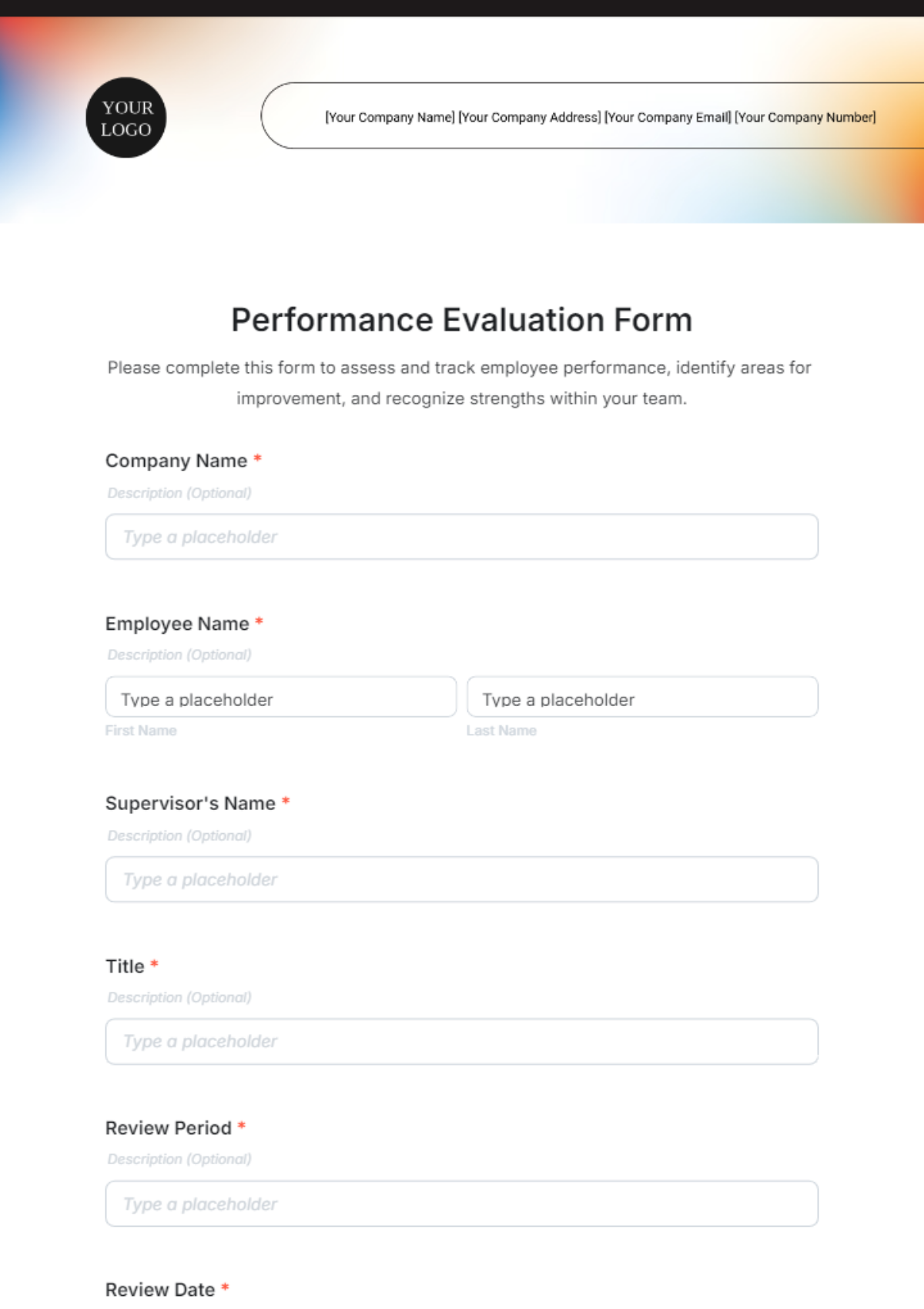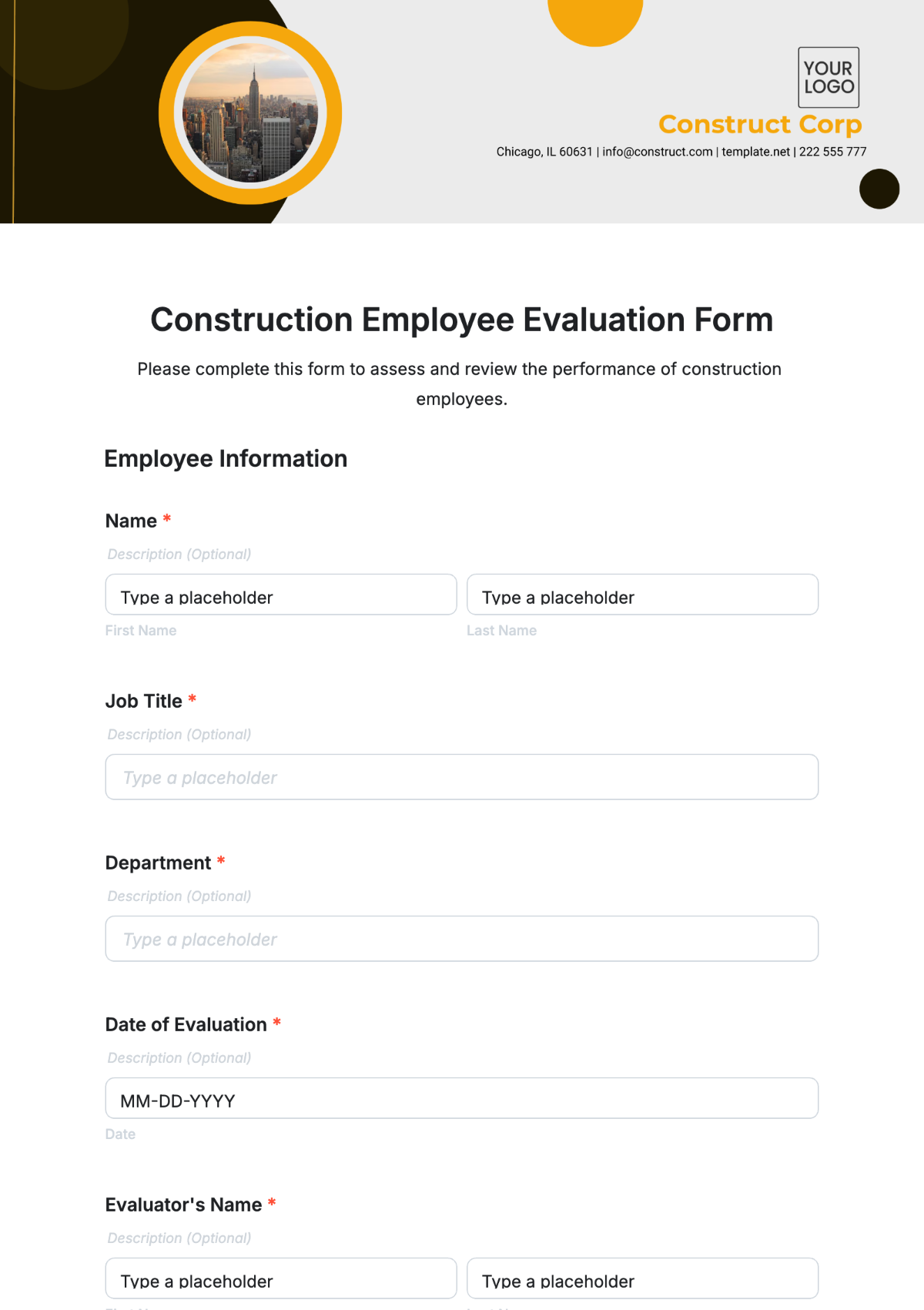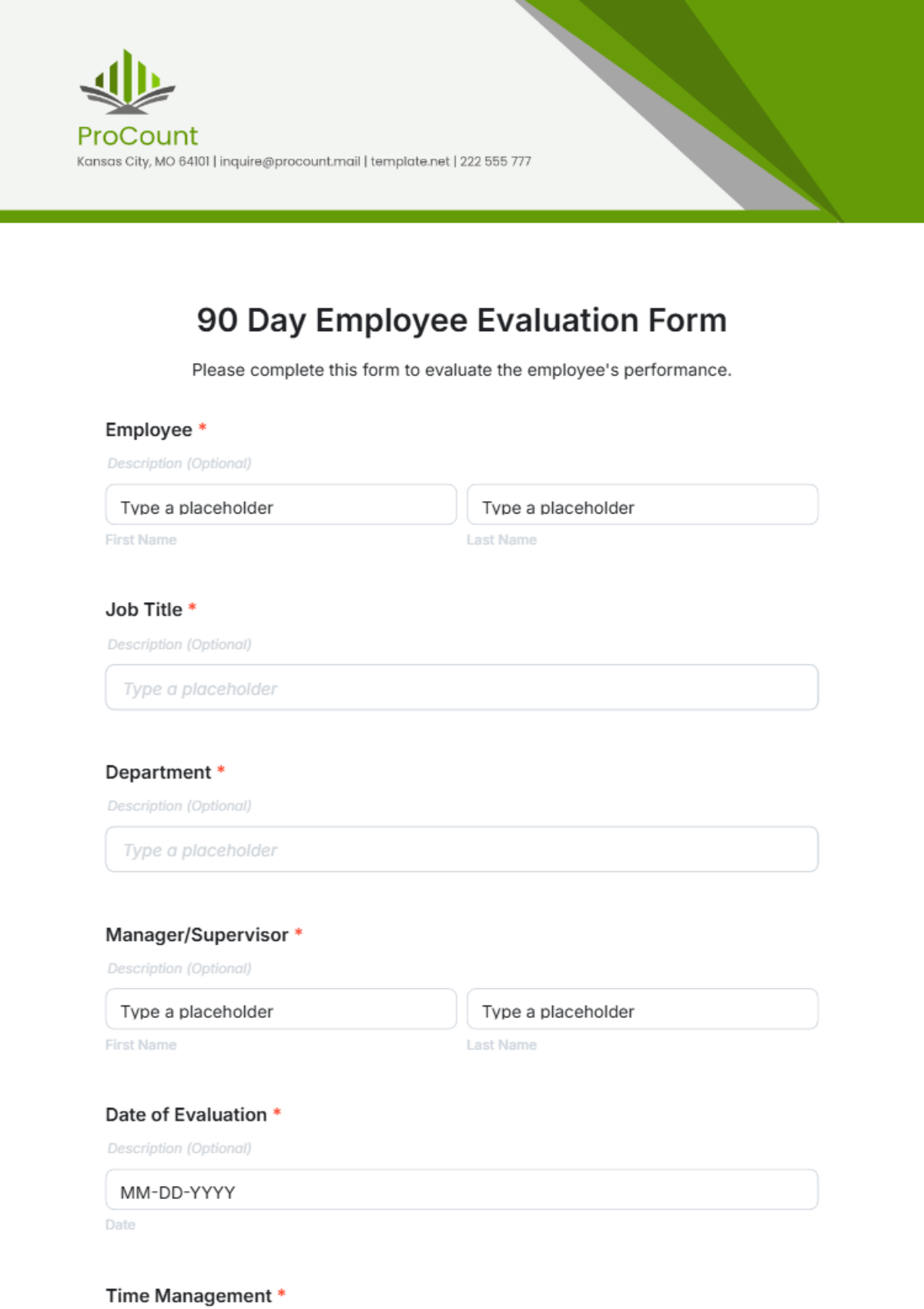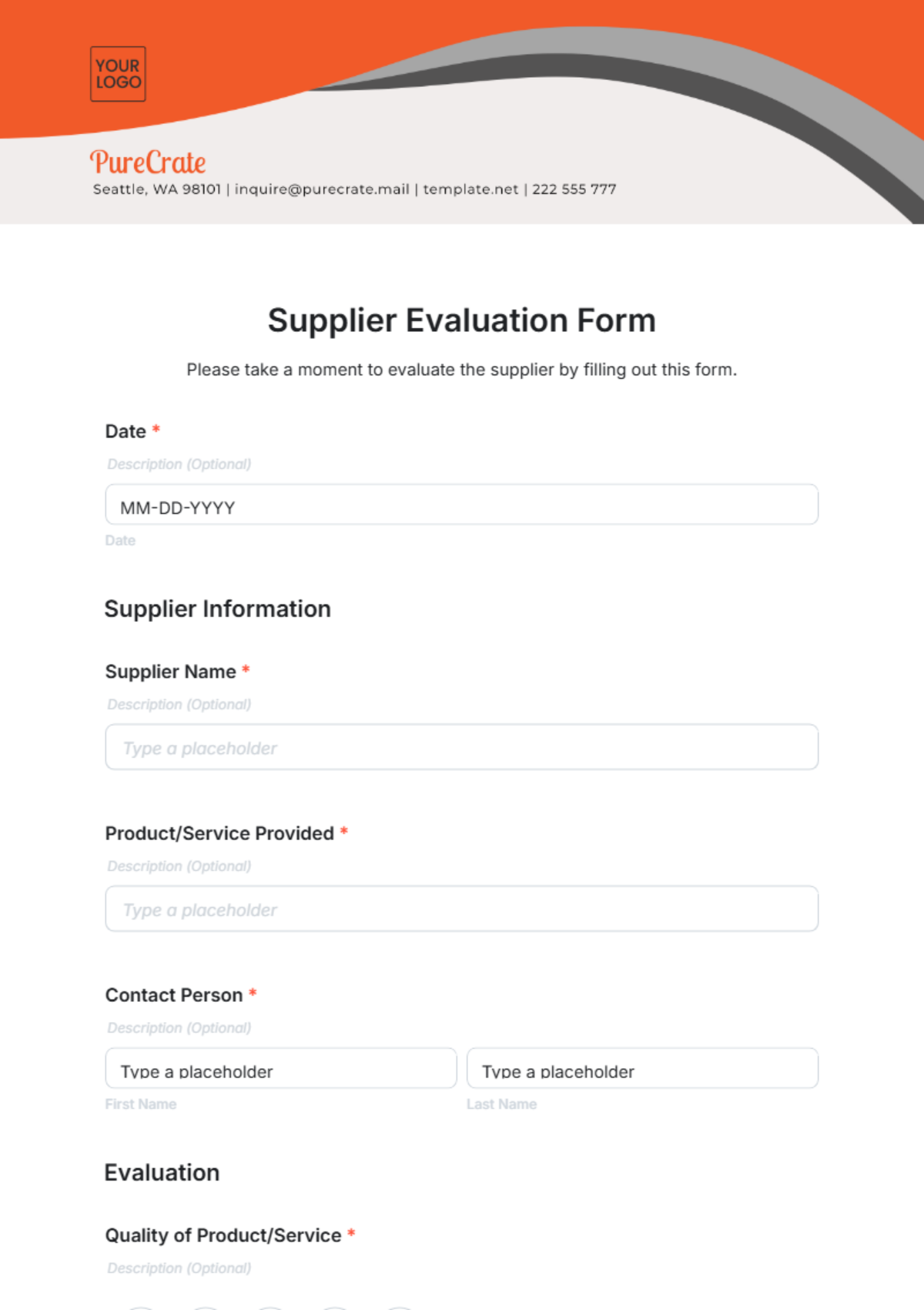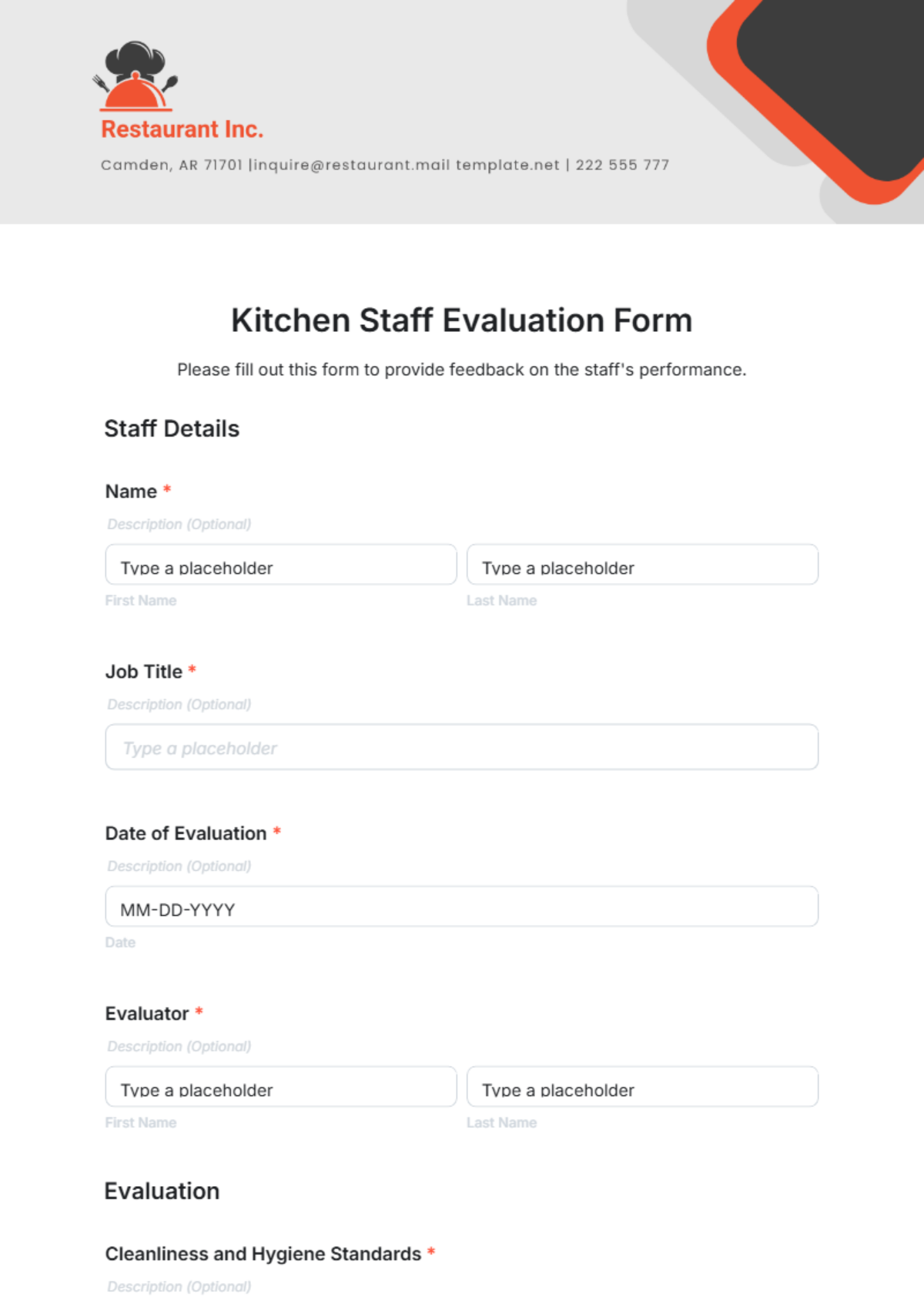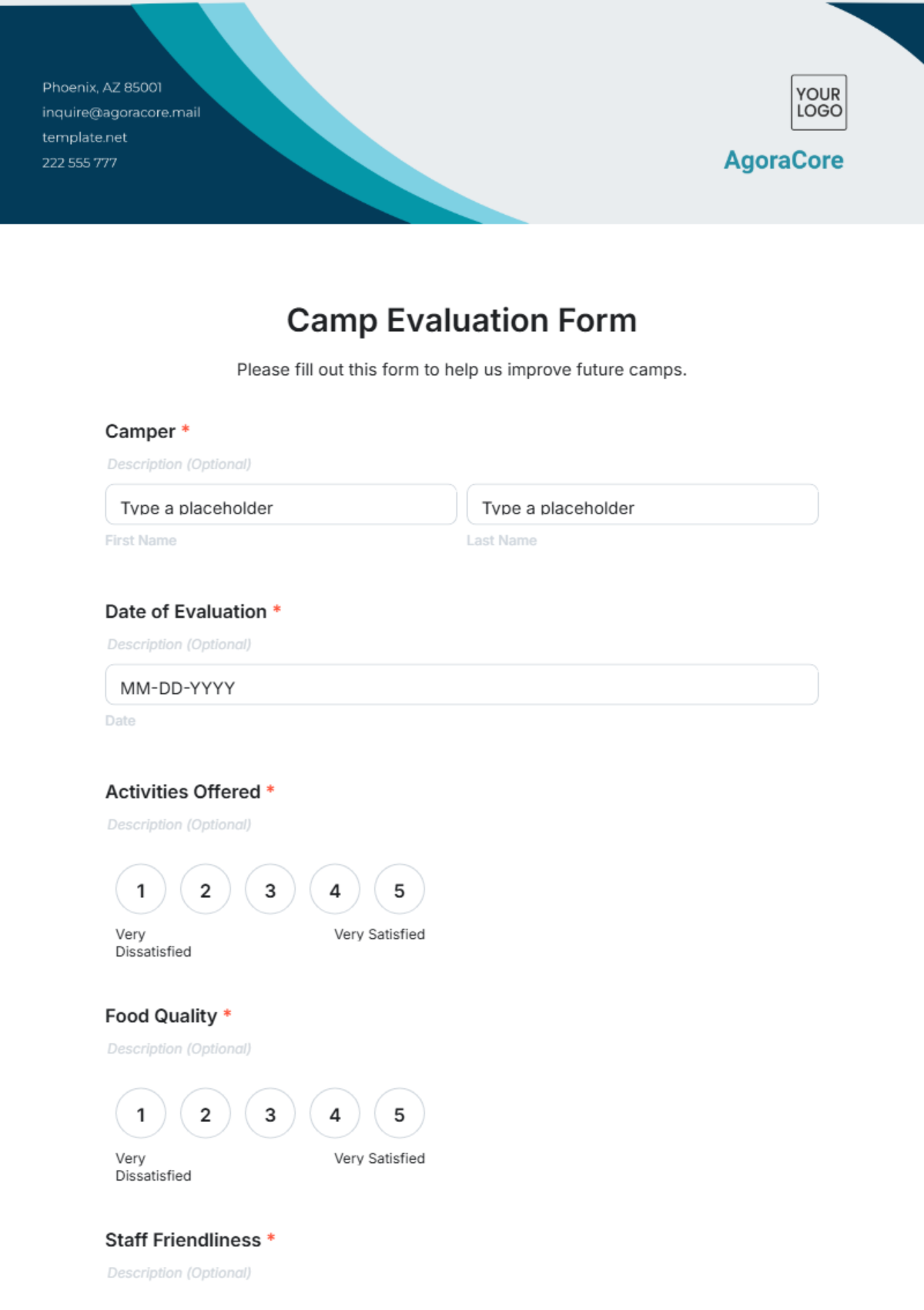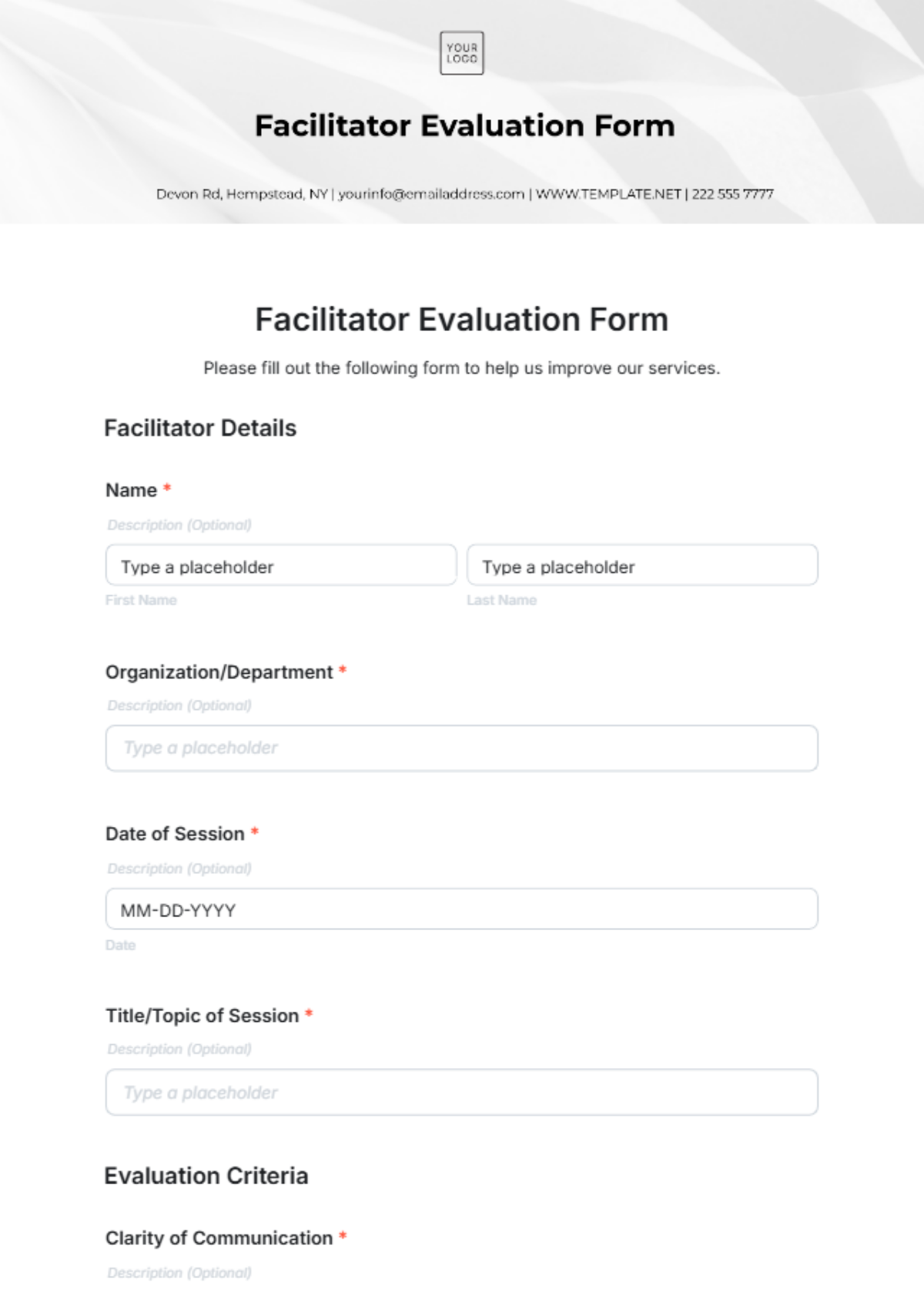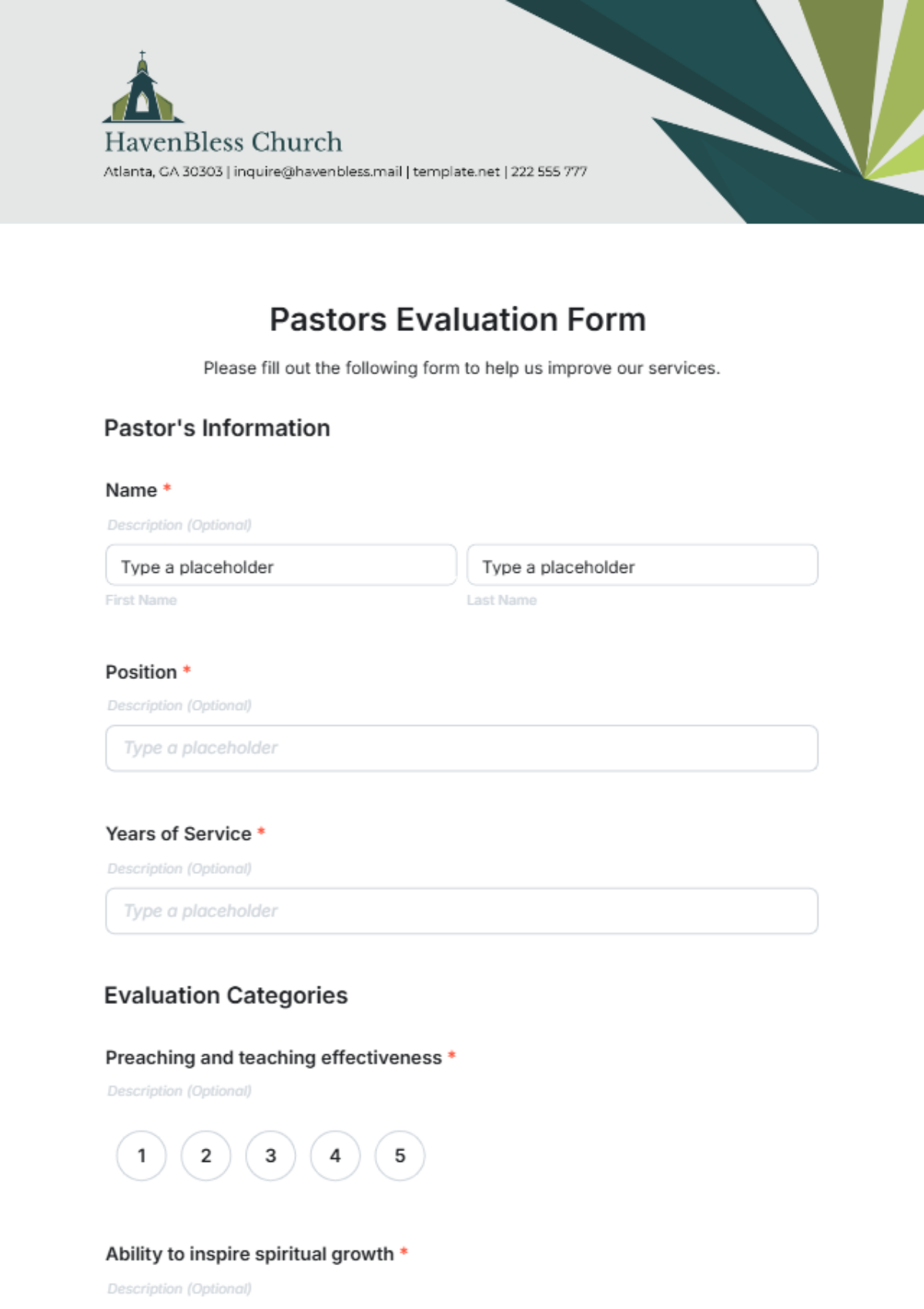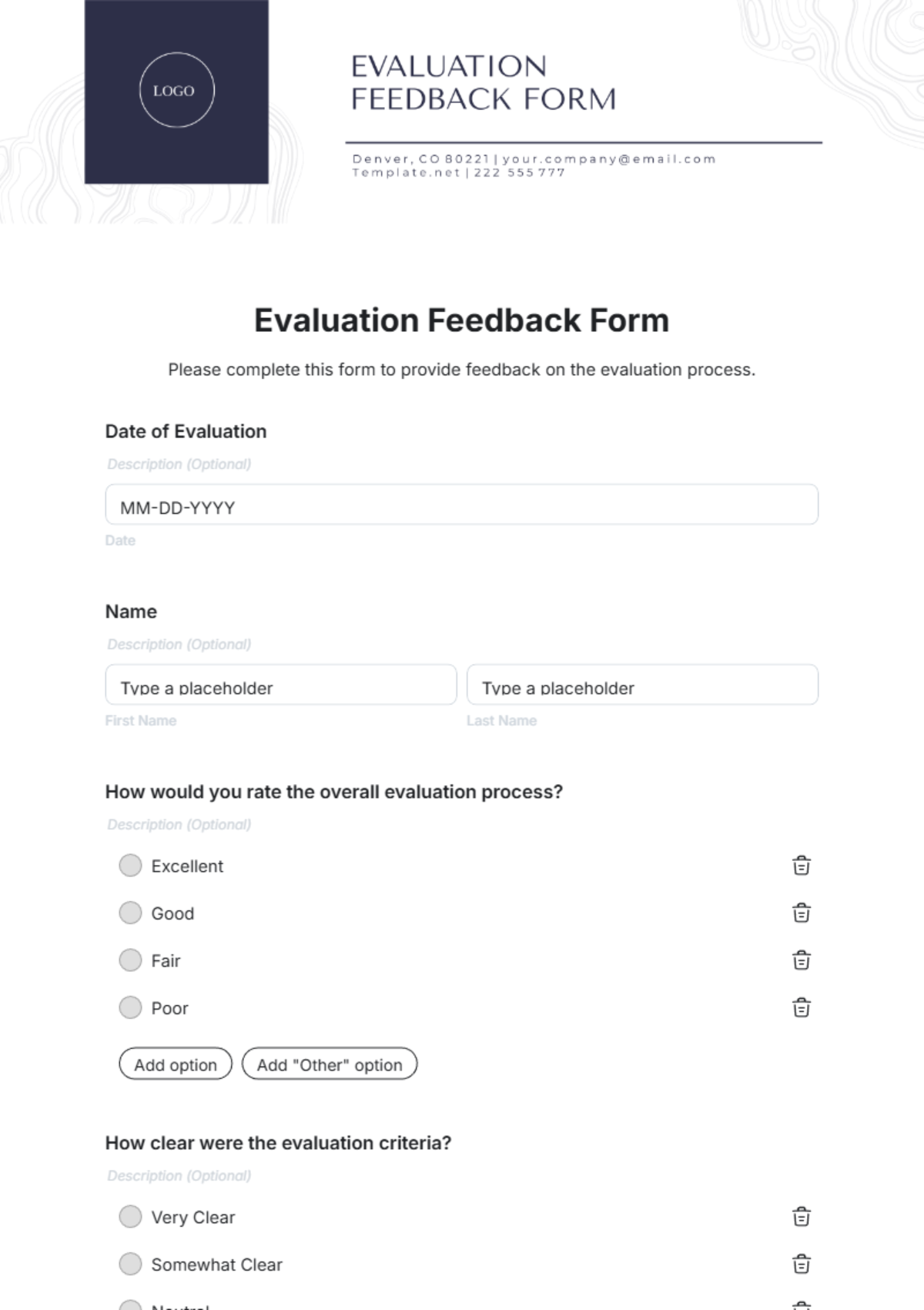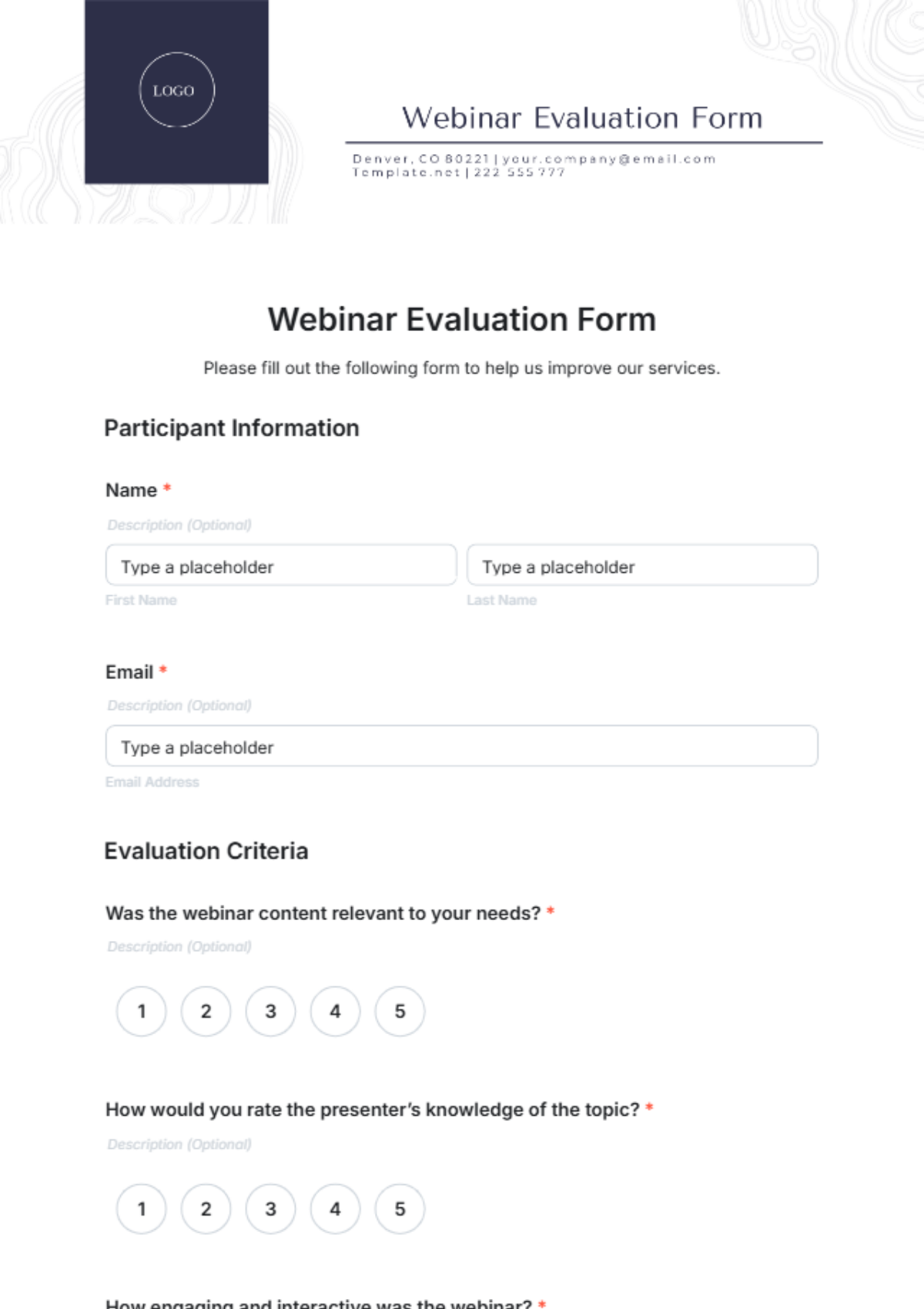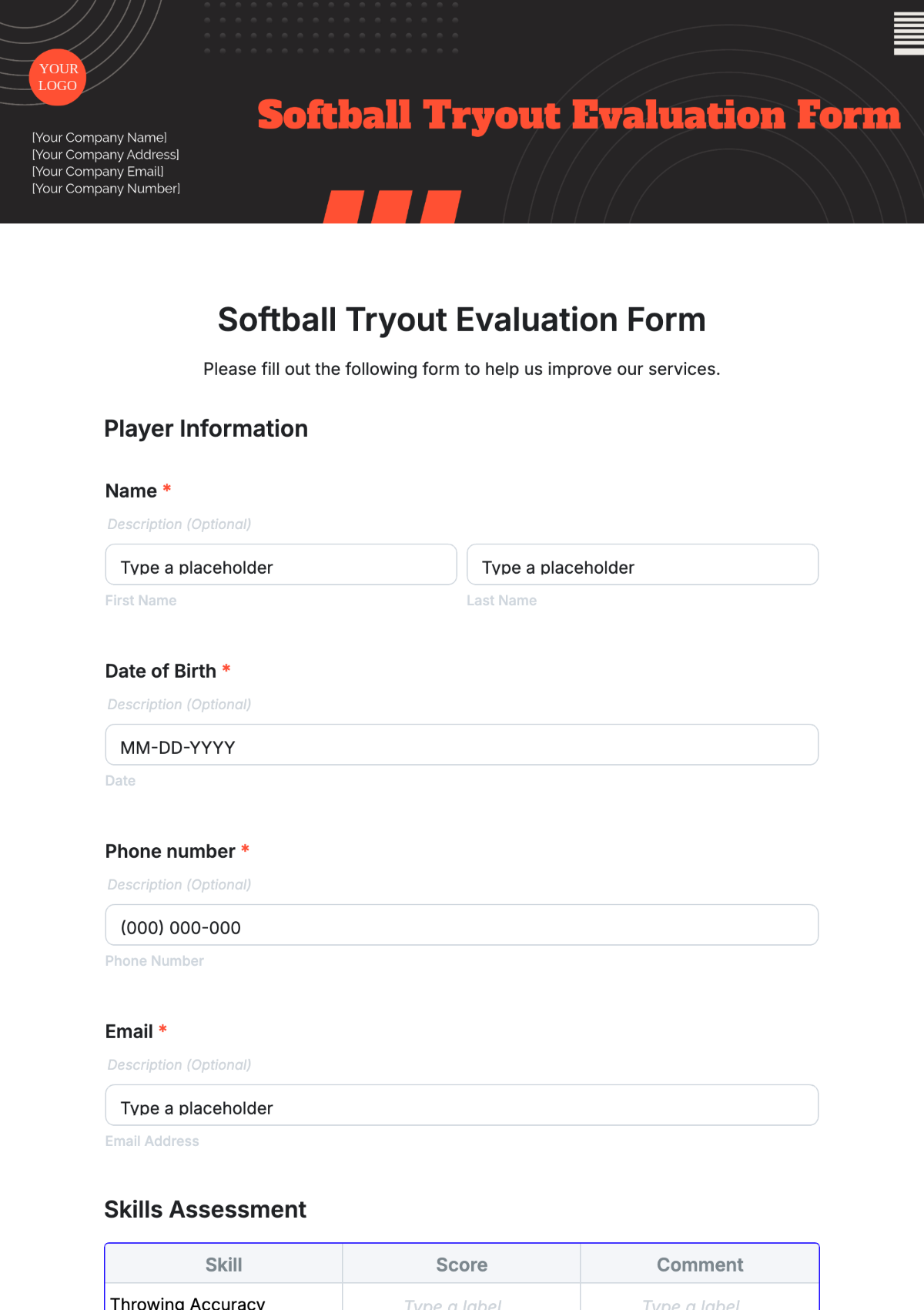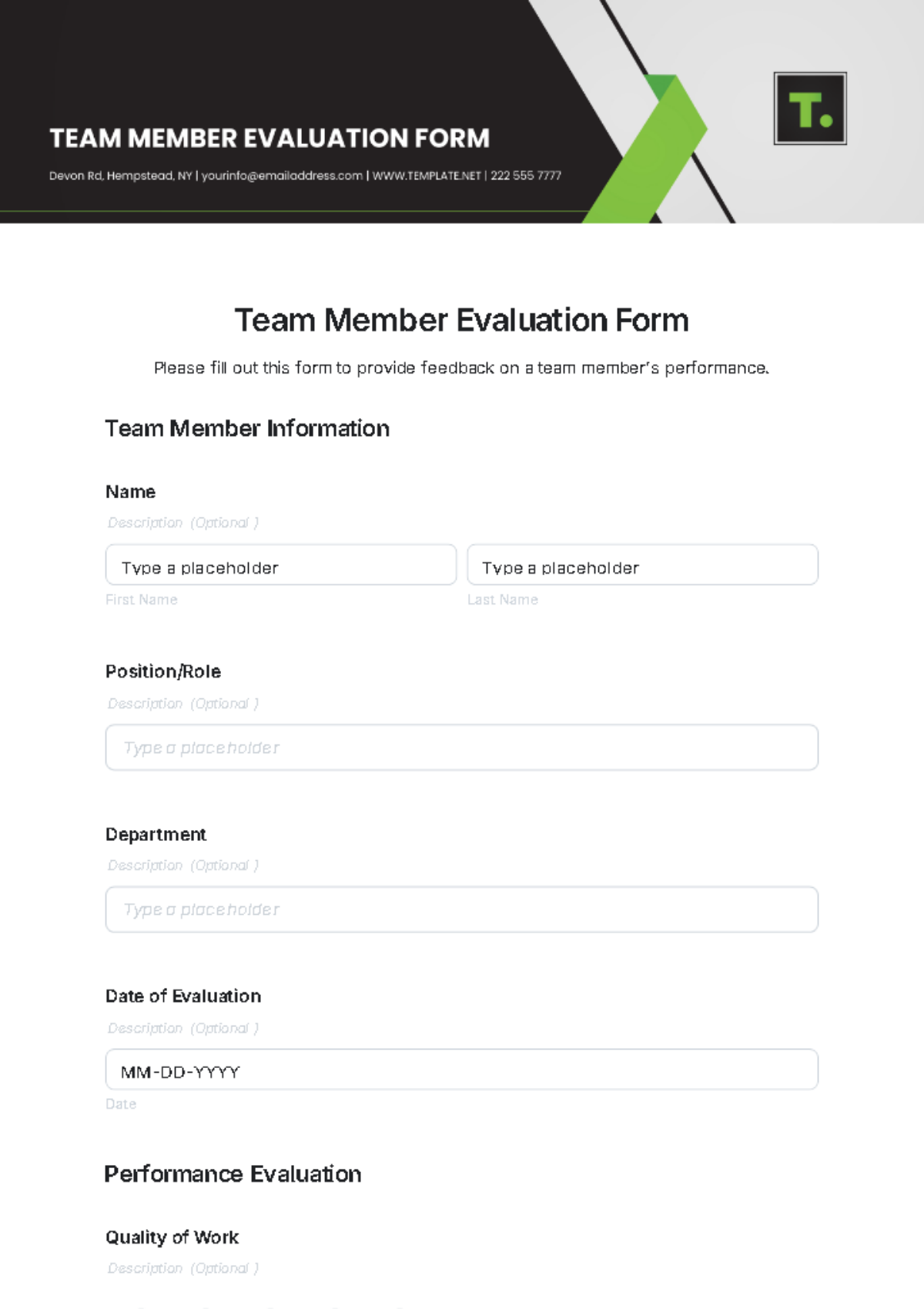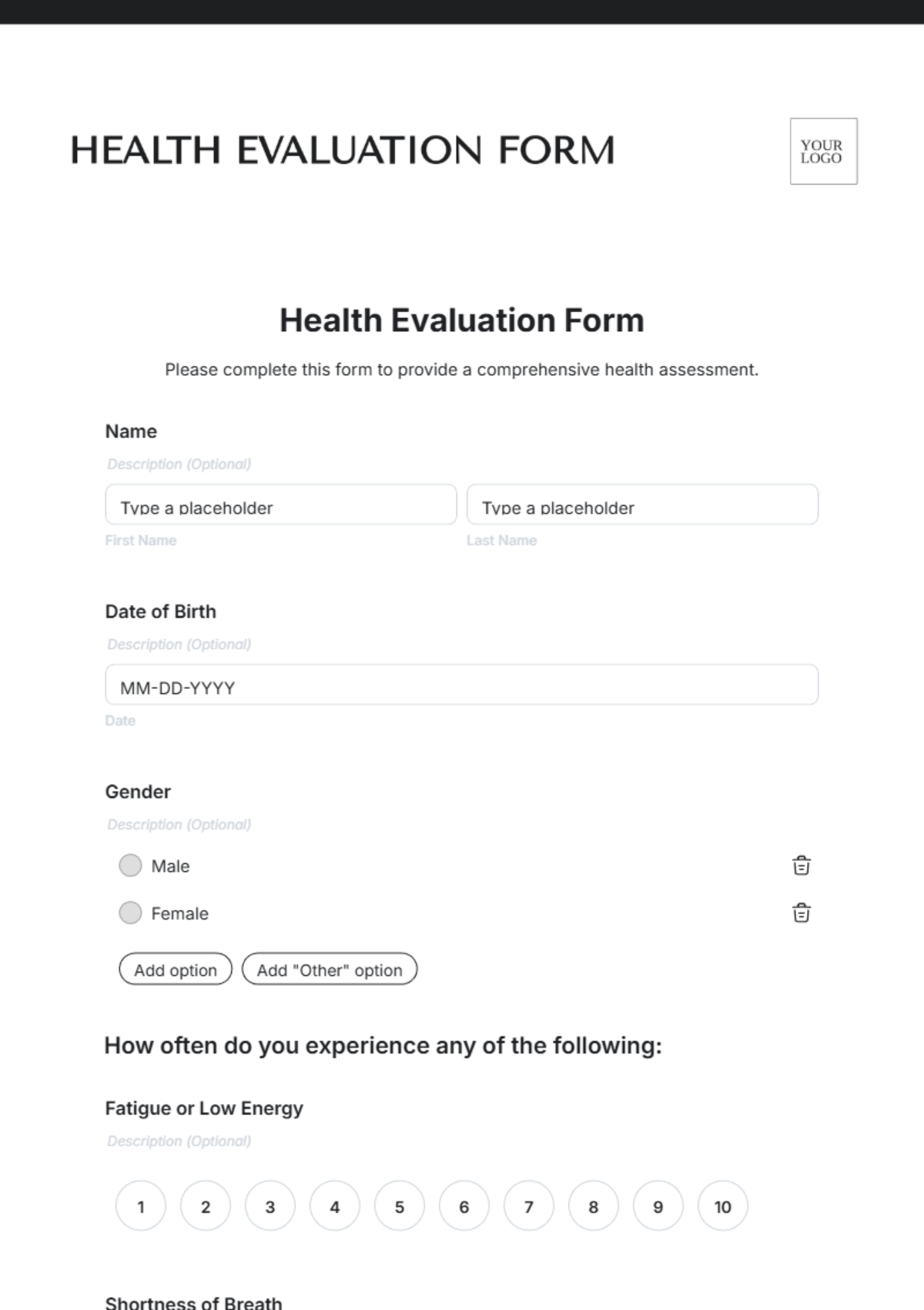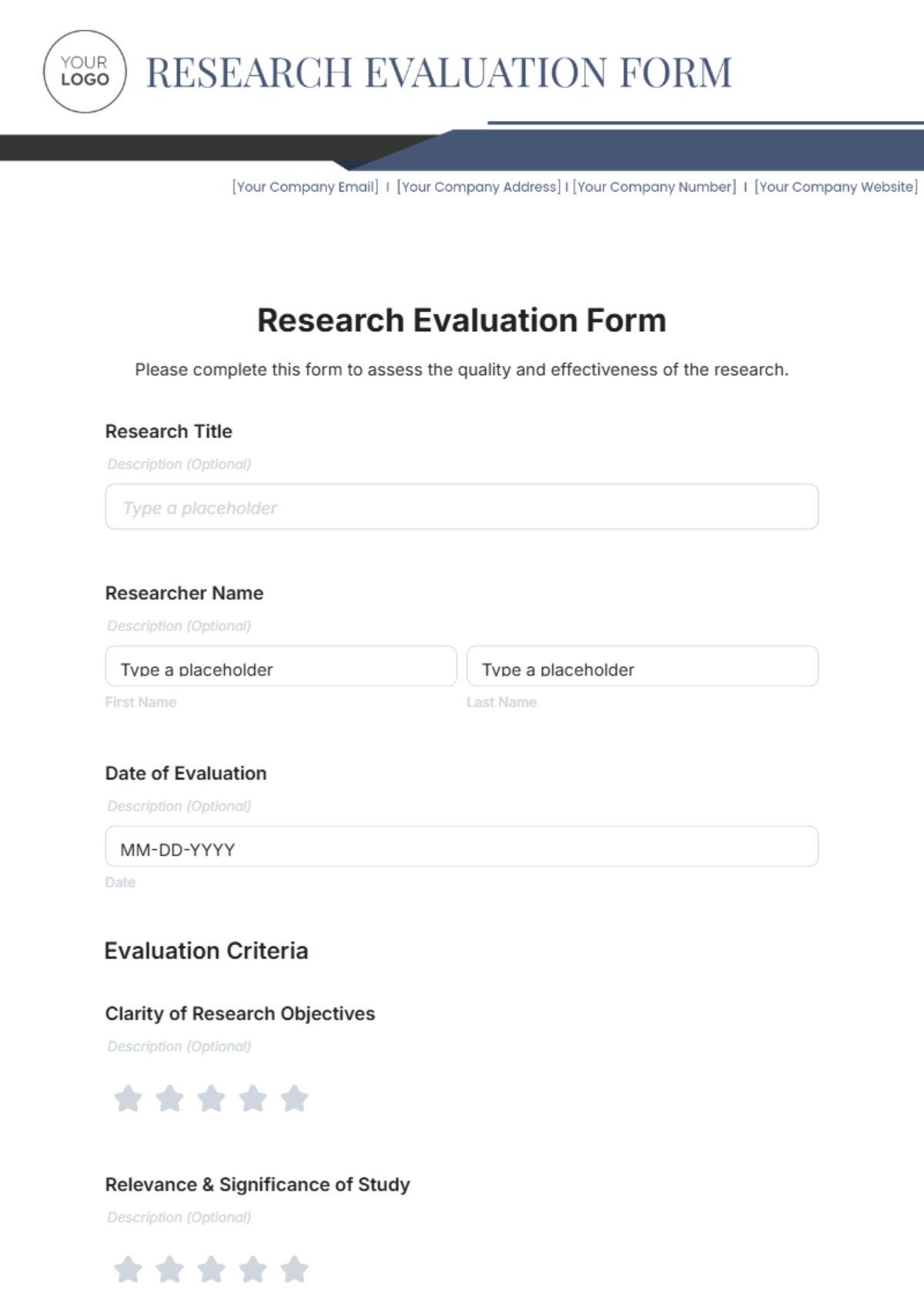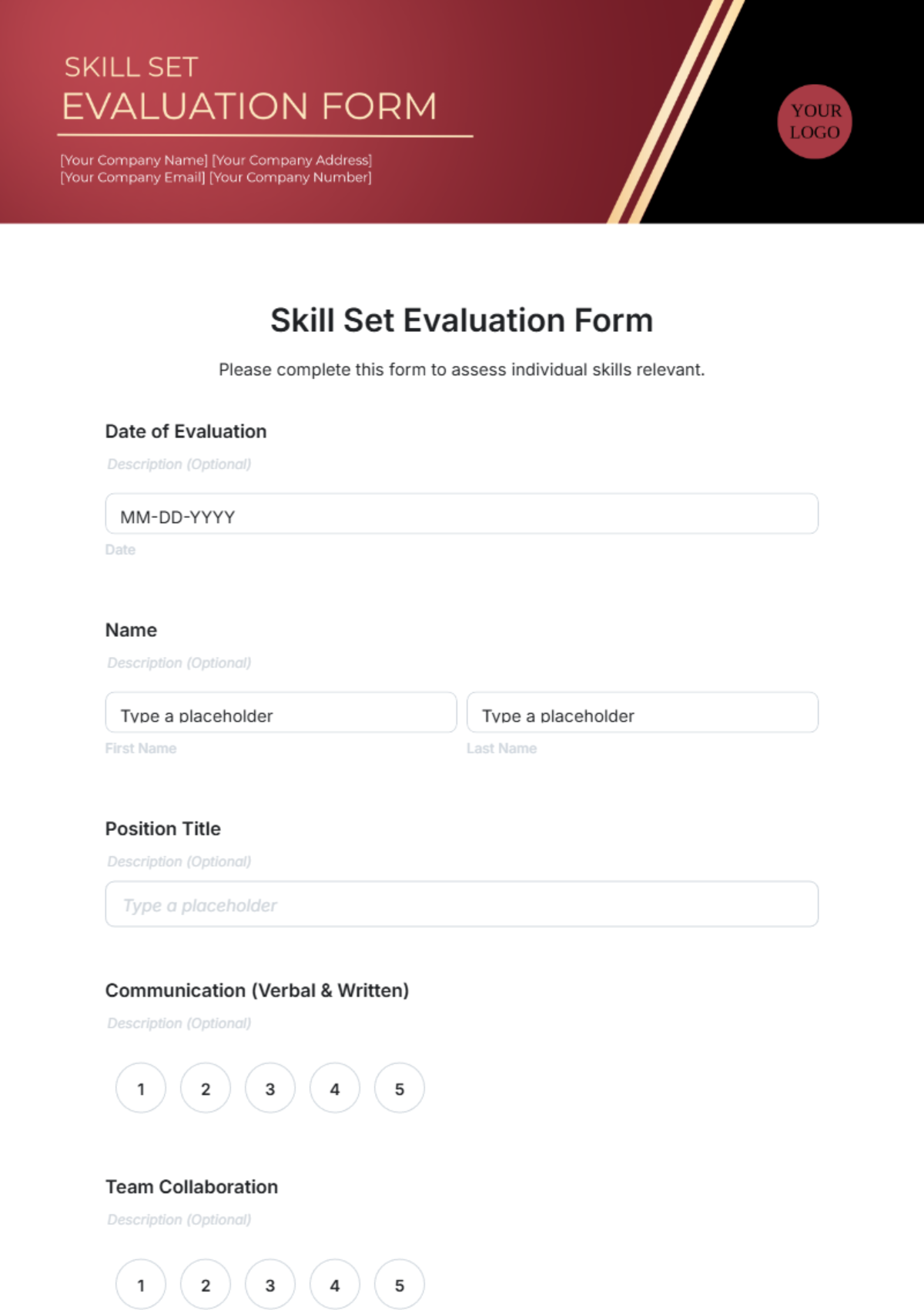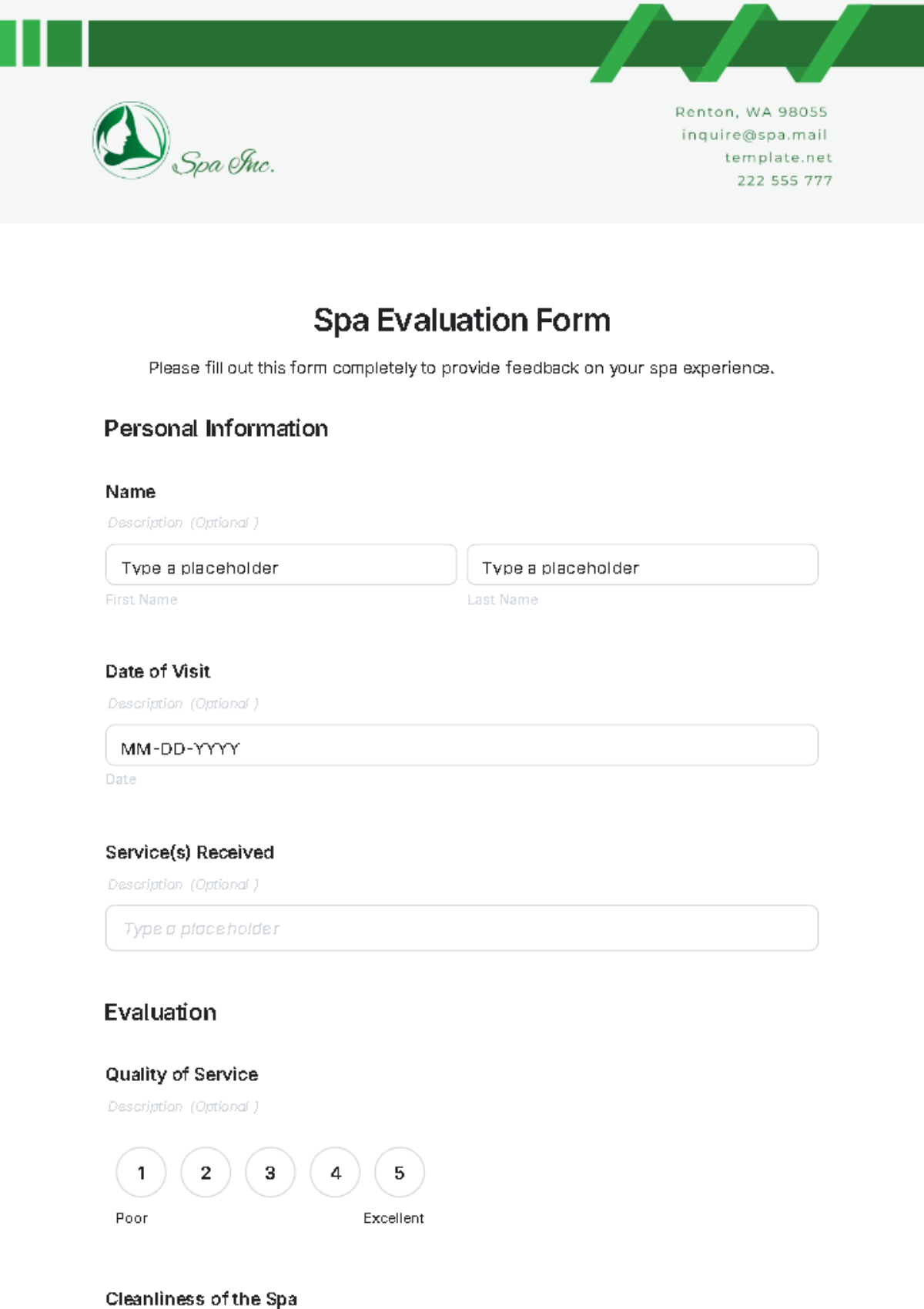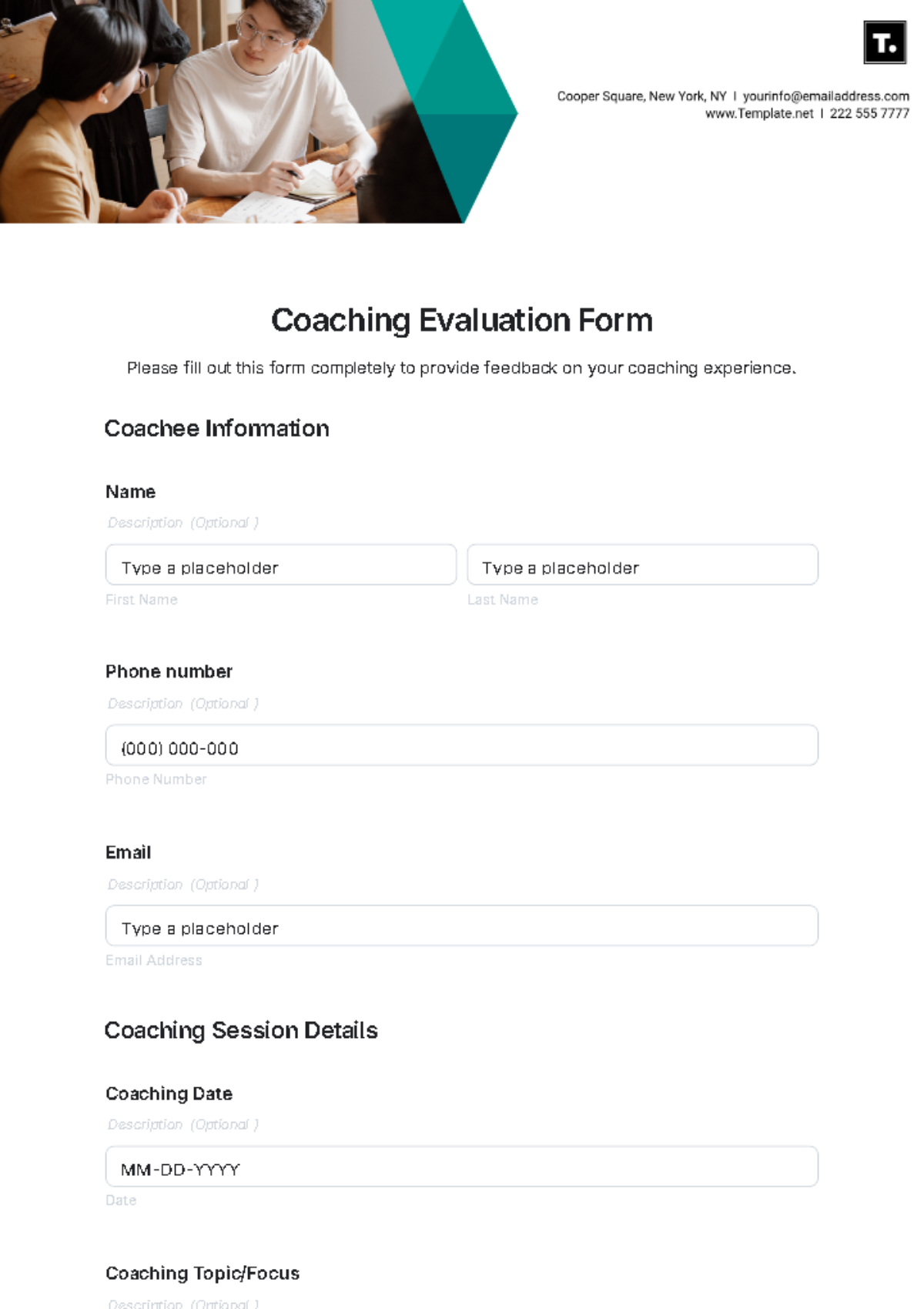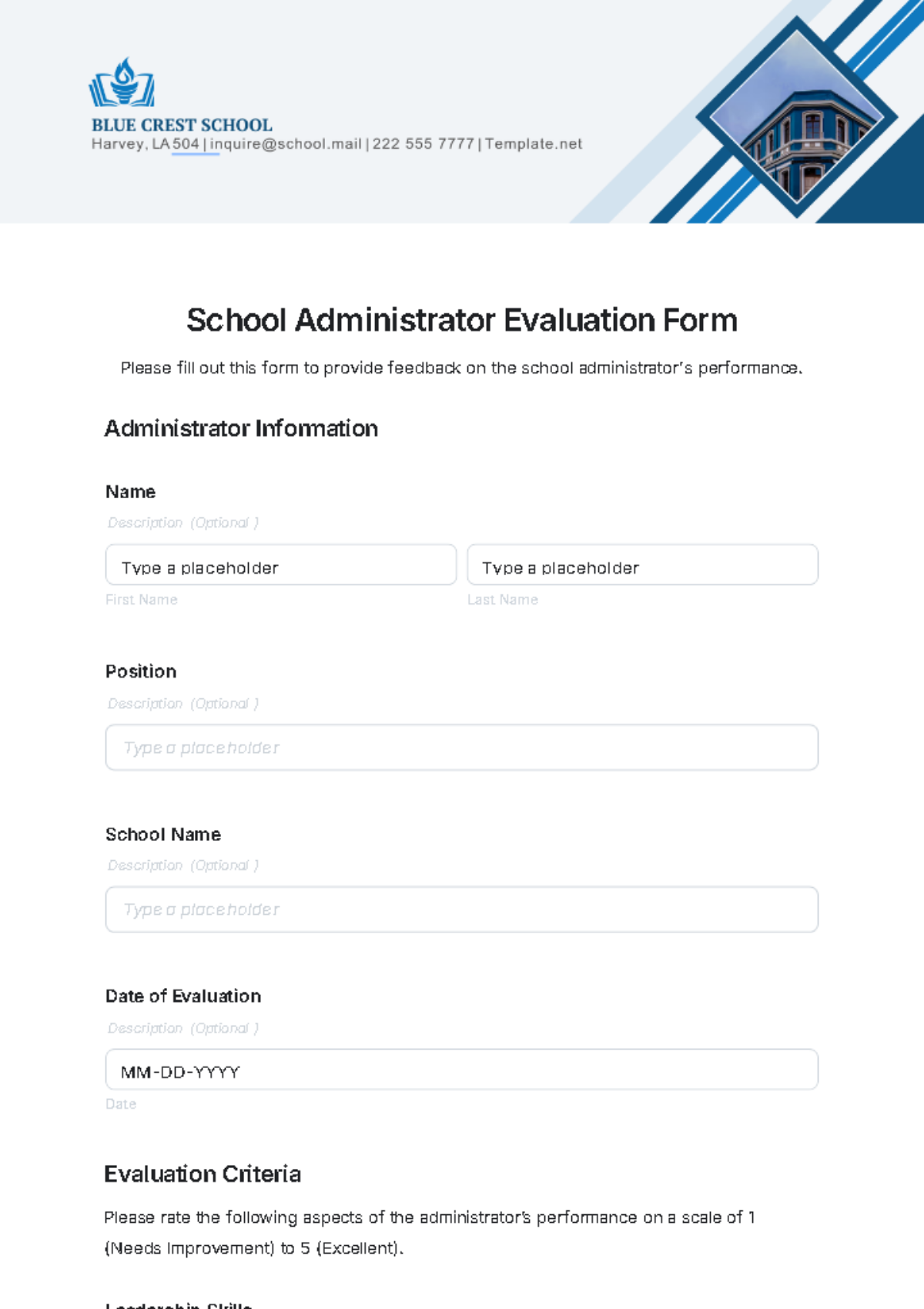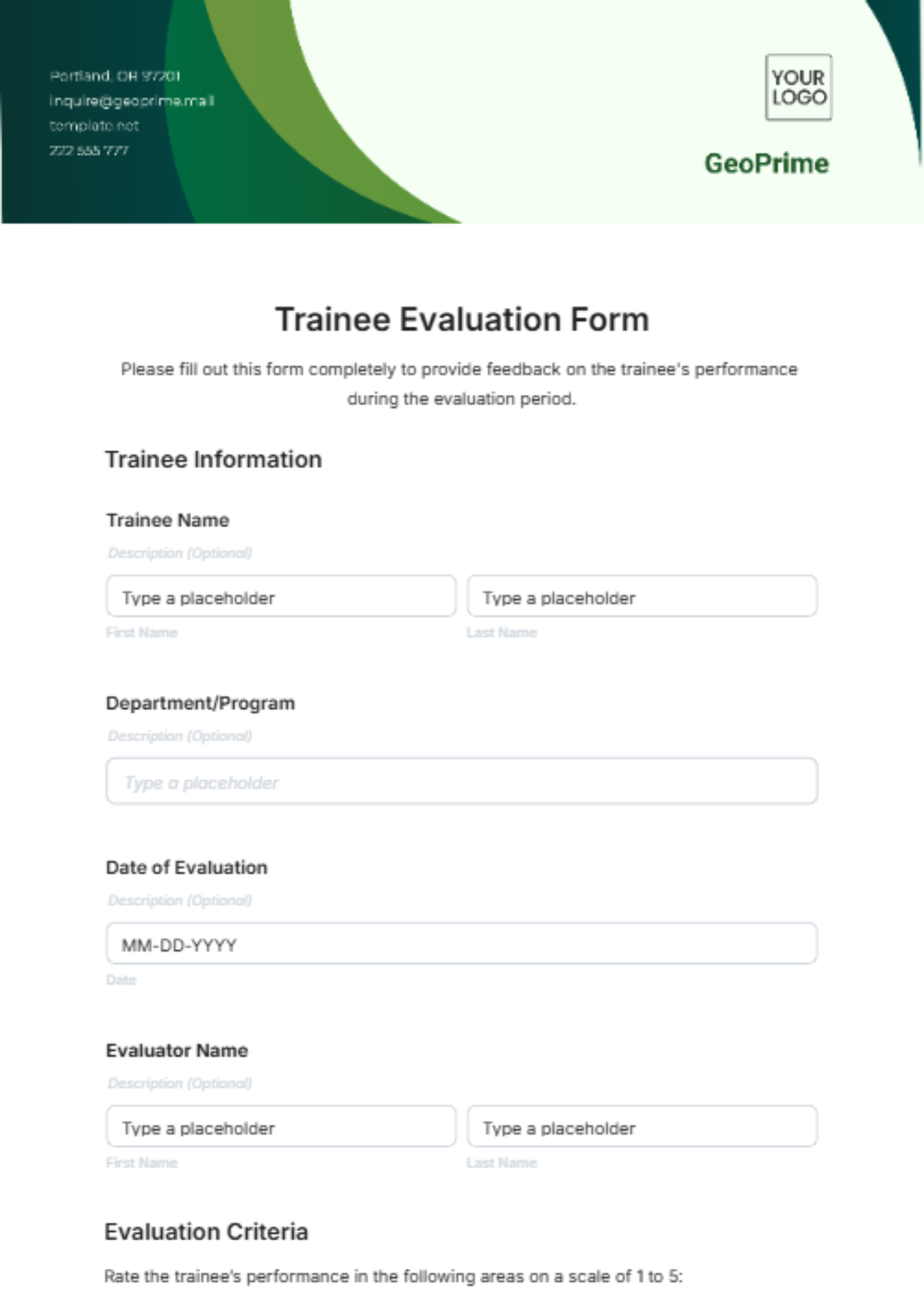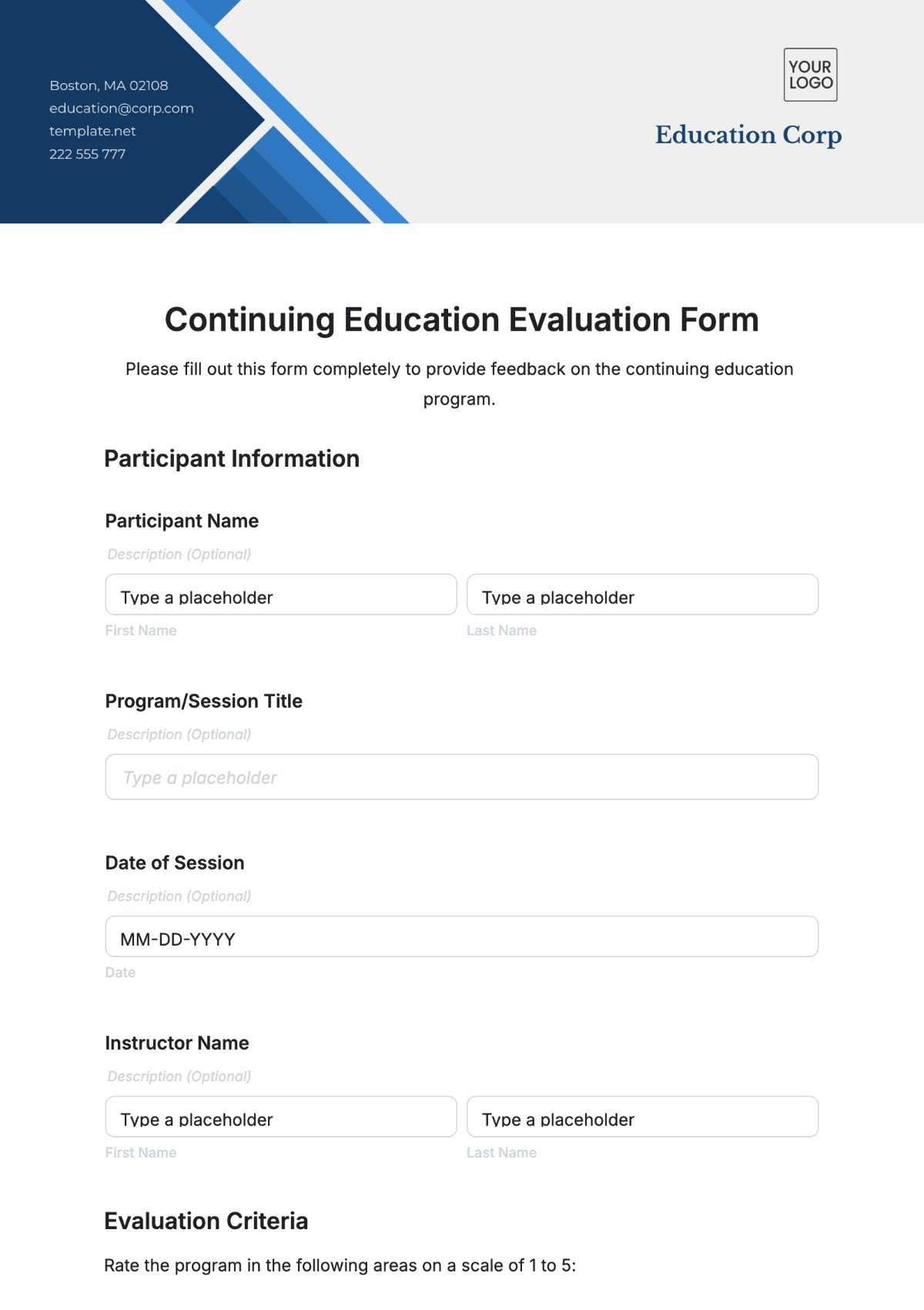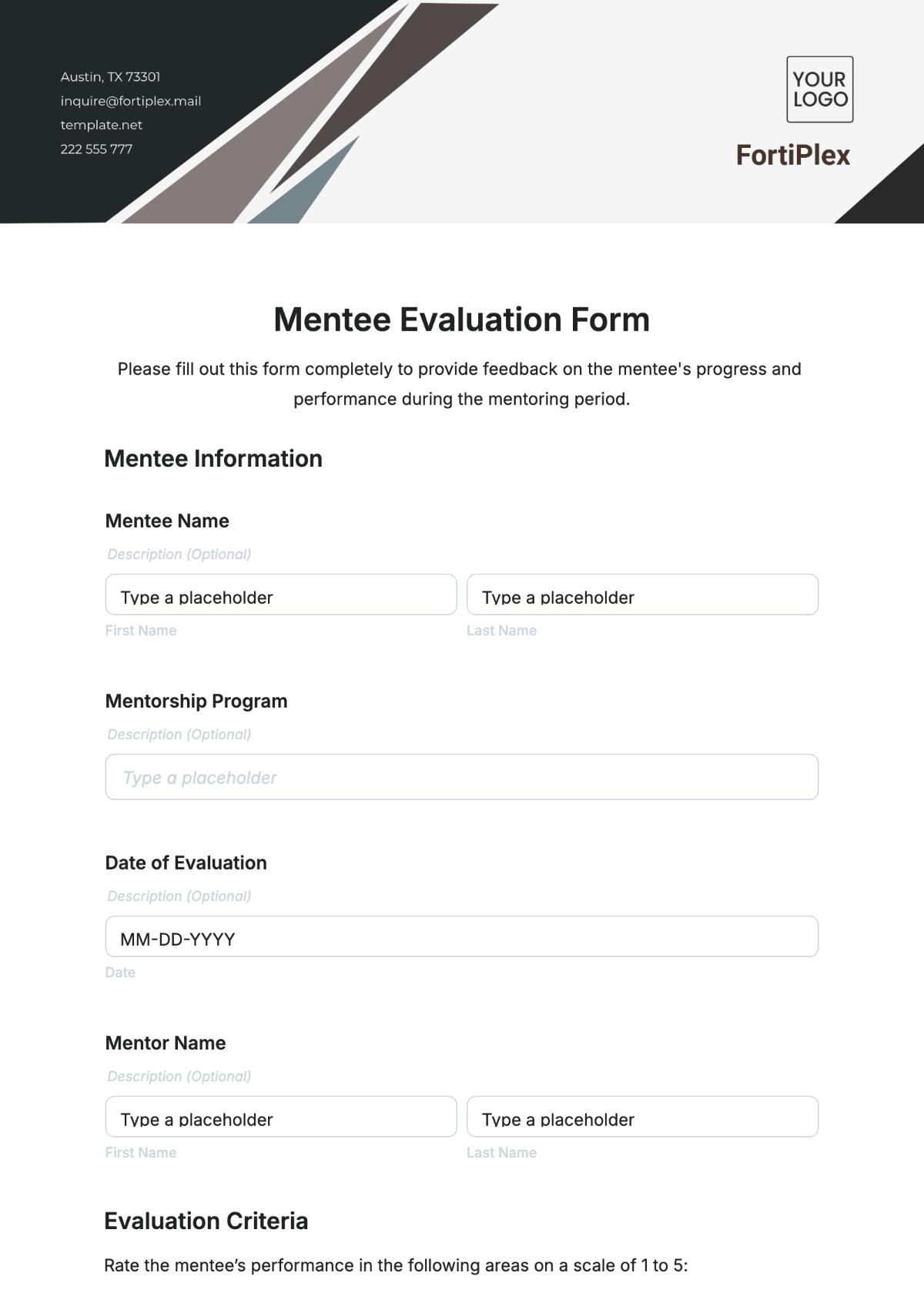Accounting Asset Valuation Evaluation Form
This Accounting Asset Valuation Evaluation Form provides a comprehensive assessment of the company's asset values, utilizing established methodologies and assumptions to ensure accuracy and compliance with accounting standards. It serves as a vital tool for informed decision-making and financial transparency.
I. General Information
Name of the entity being evaluated: | [Your Company Name] |
Date of valuation: | [Month Day, Year] |
Valuation prepared by: | [Your Name] |
Contact information: | [Your Email] |
II. Asset Identification
Asset Type | Description | Identification Number | Location |
|---|---|---|---|
Tangible | Office Building | AZ113 | New York |
Tangible | Machinery & Equipment | ME412 | Factory |
Intangible | Patent | PT661 | Headquarters |
III. Valuation Methodology
The valuation process was carried out by leveraging the income approach. Specific emphasis was put on utilizing the discounted cash flow method, which is a strategy used to estimate the present value of the cash flows that will be produced in the future by the assets in question. This methodology considers various elements such as the timing of the cash flows, their magnitude, as well as the assessed risk associated with them. Therefore, it provides a comprehensive insight into the value that these assets are anticipated to generate in the future.
IV. Asset Details
A. Tangible Assets:
Asset | Original Cost (USD) | Accumulated Depreciation (USD) | Current Market Value (USD) | Net Book Value (USD) |
|---|---|---|---|---|
Office Building | $5,000,000 | $1,200,000 | $6,500,000 | $3,800,000 |
Machinery & Equipment | $2,500,000 | $800,000 | $2,200,000 | $1,700,000 |
B. Intangible Assets:
Asset | Description | Original Cost (USD) | Amortization (USD) | Current Fair Value (USD) | Net Book Value (USD) |
|---|---|---|---|---|---|
Patent | [Your Company Name] Patent | $500,000 | $100,000 | $400,000 | $400,000 |
V. Valuation Assumptions and Adjustments
The discount rate of 8% was chosen based on the company's cost of capital and market risk considerations, aiming to reflect the time value of money and the risk associated with future cash flows.
The adjustment to the market value of the office building was made after considering recent comparable sales in the area, ensuring the valuation reflects the current market conditions accurately.
VI. Supporting Documentation
The attached appraisal reports provide detailed analyses of the office building and machinery & equipment, including relevant factors such as condition, location, and comparable sales data.
The market research data on similar patents offers insights into the valuation of the [Your Company Name] Patent, providing a basis for determining its fair value within the market.
VII. Conclusion and Certification
The total valuation of $15,700,000 represents the estimated fair value of [Your Company Name]'s assets as of the valuation date, providing stakeholders with a comprehensive understanding of the company's asset value.
As the preparer of this valuation, I affirm that the information presented herein is accurate to the best of my knowledge and complies with all relevant accounting standards and regulations, ensuring the reliability and integrity of the valuation process.
VIII. Distribution
The valuation report will be distributed to key stakeholders, including the finance department, board of directors, and external auditors, to provide transparency and facilitate informed decision-making.
By disseminating the valuation report to relevant parties, [Your Company Name] demonstrates its commitment to transparency and accountability in financial reporting, fostering trust and confidence among stakeholders.
